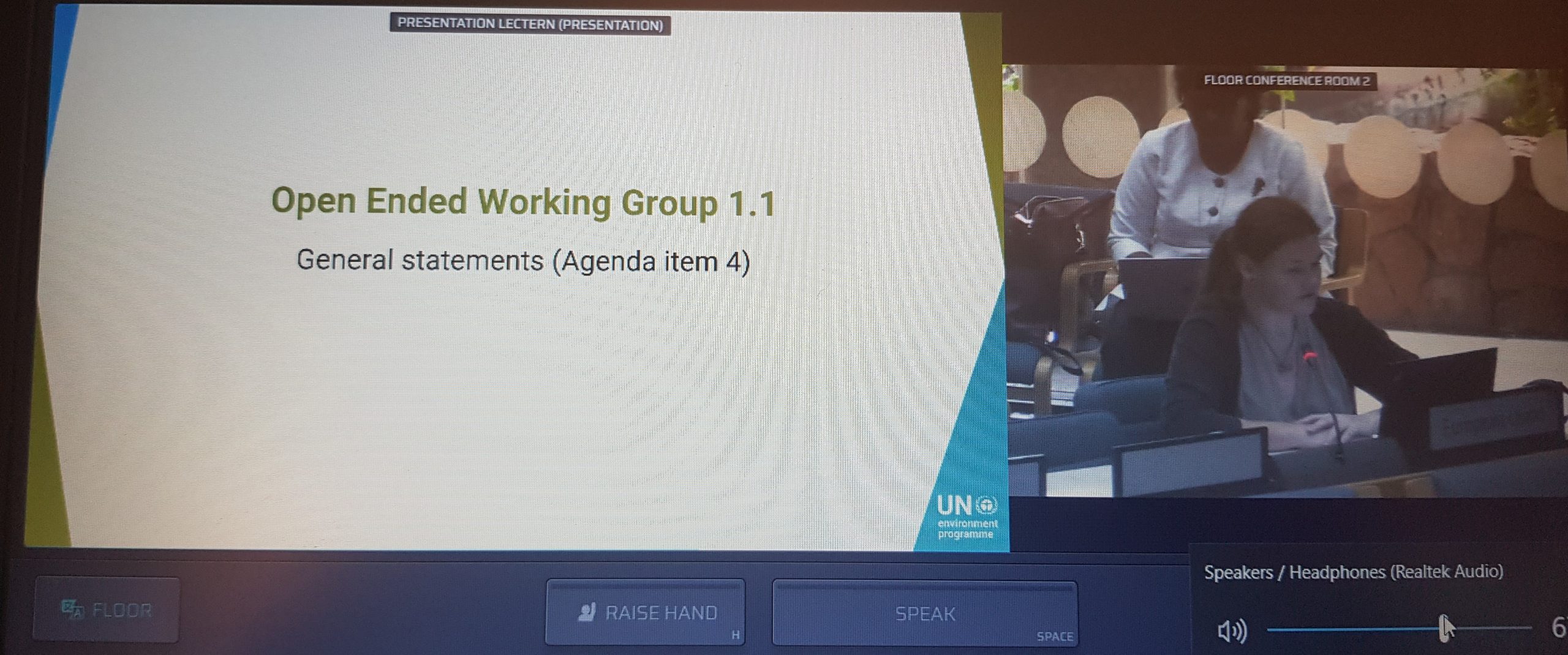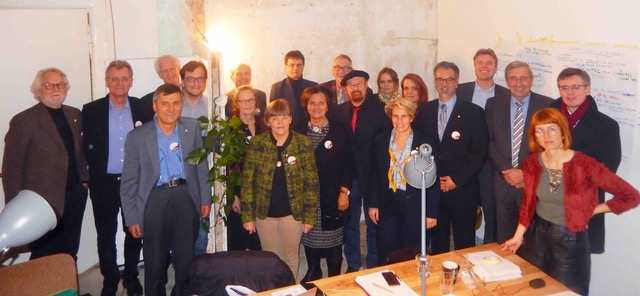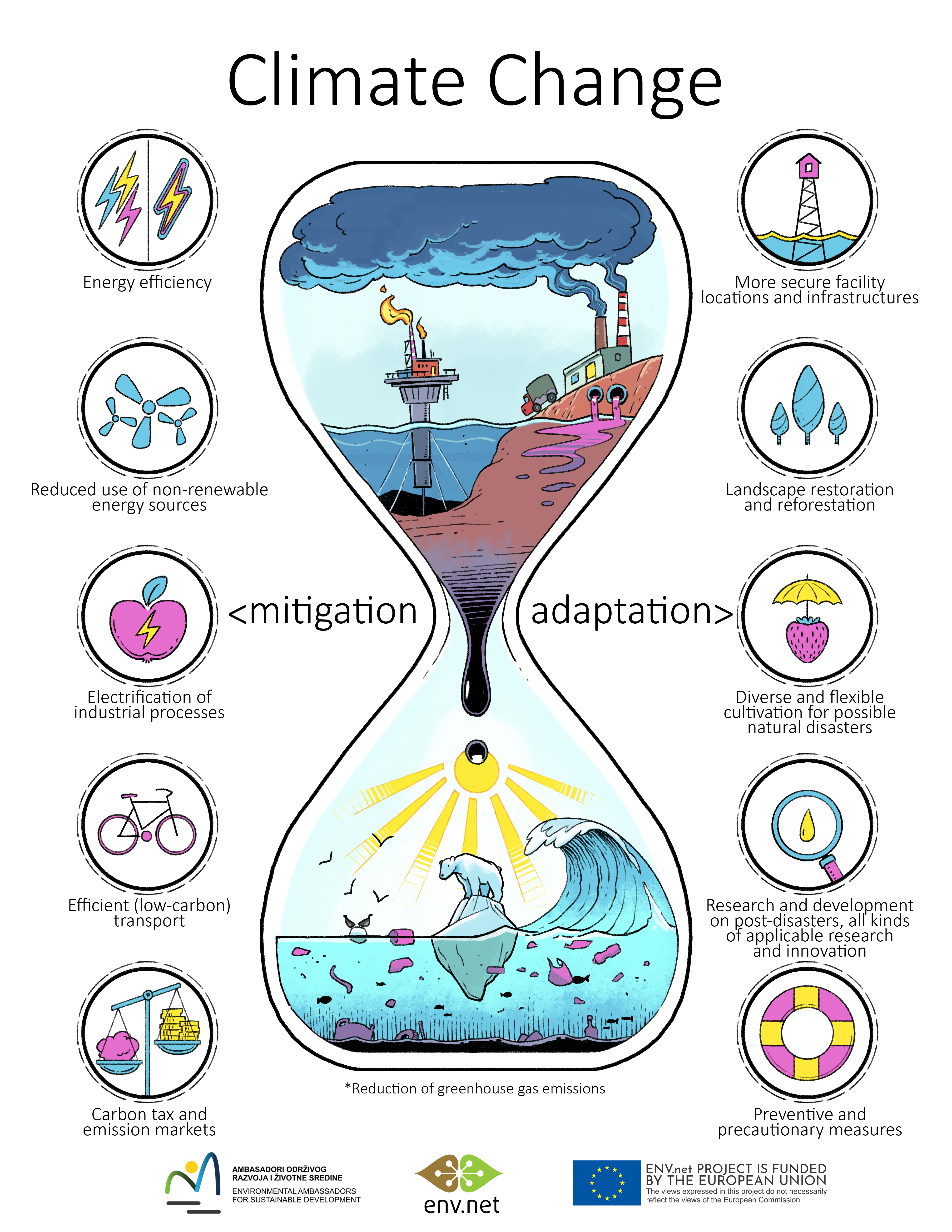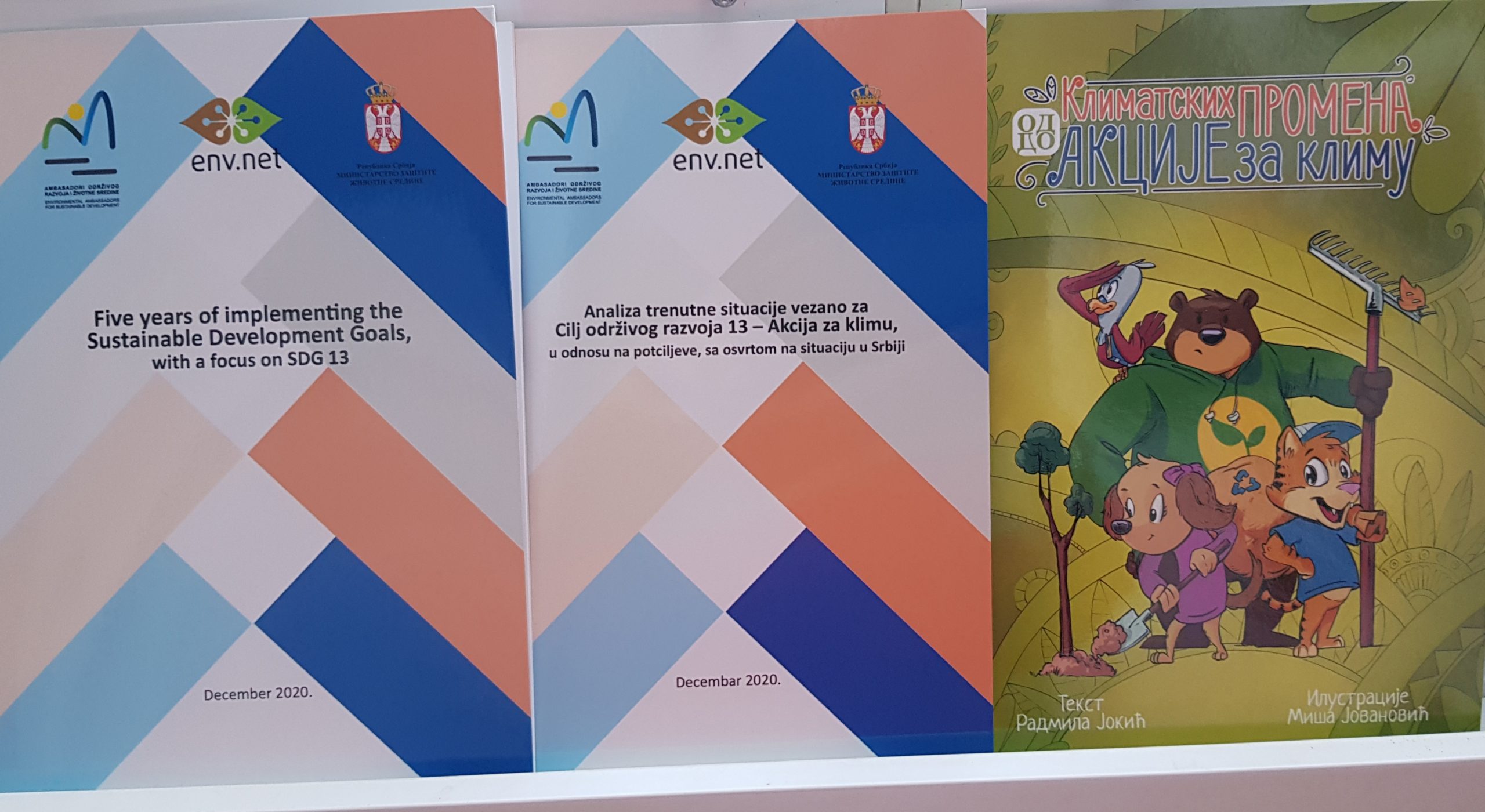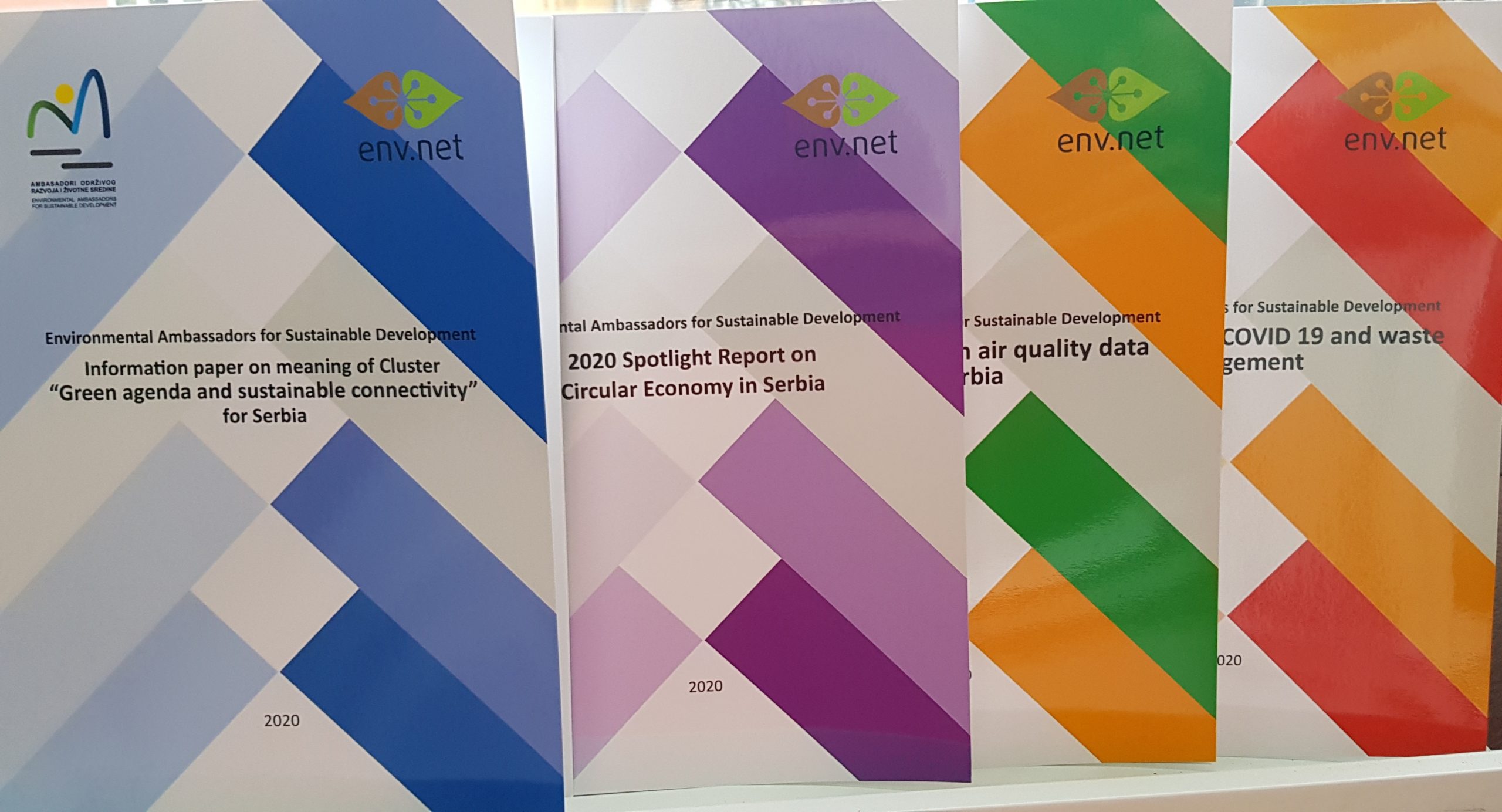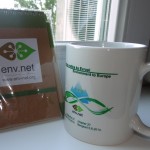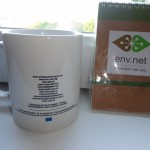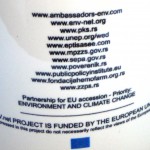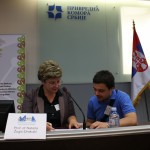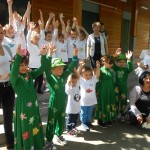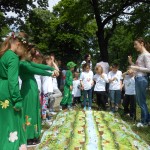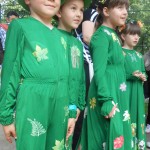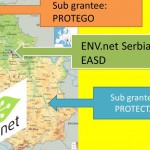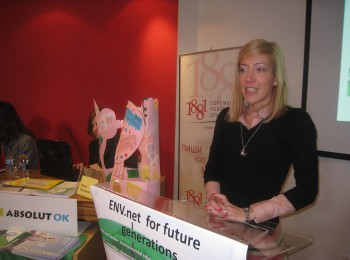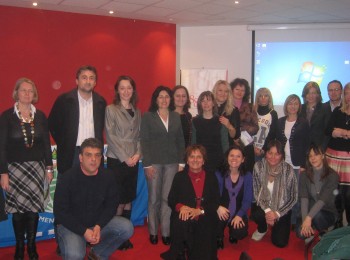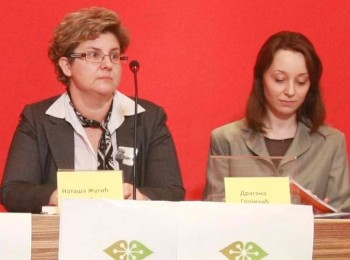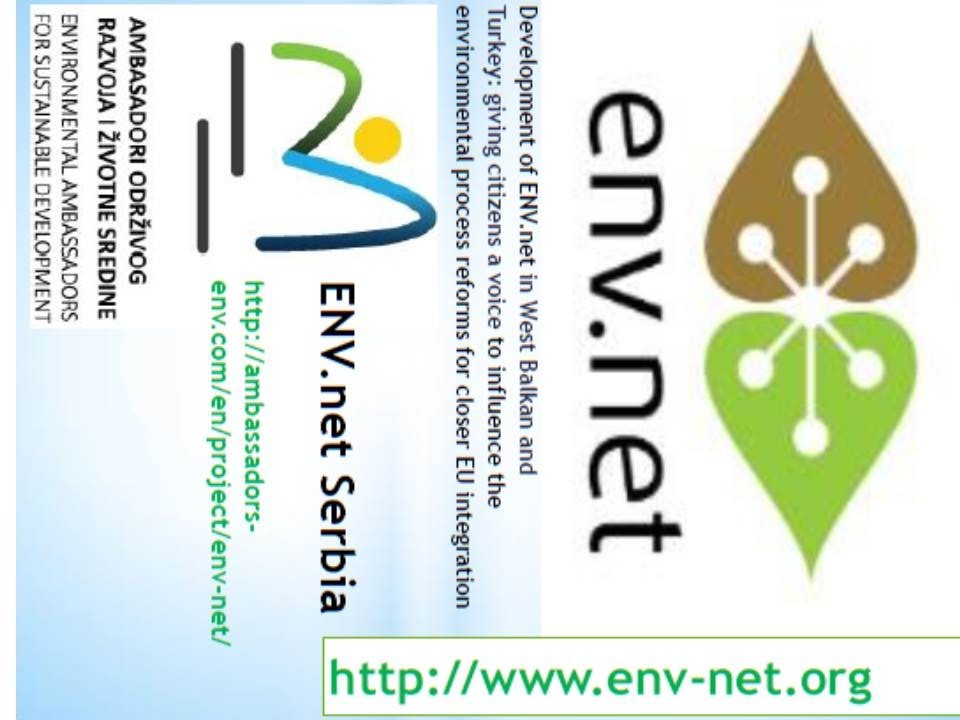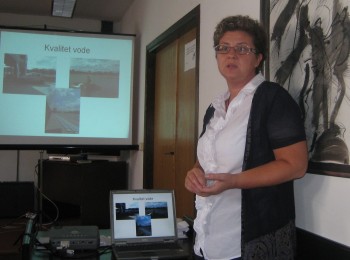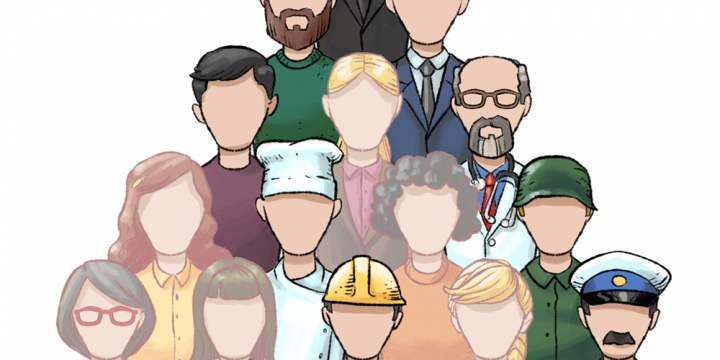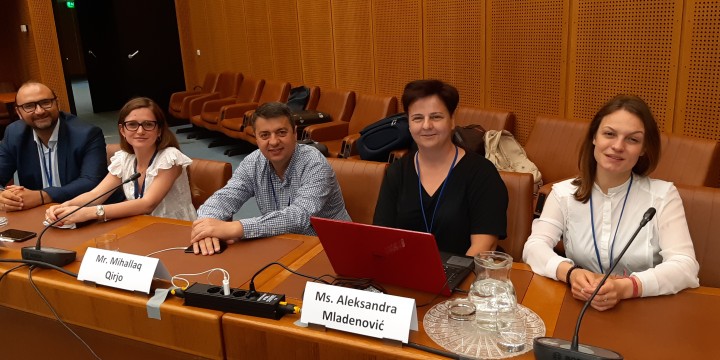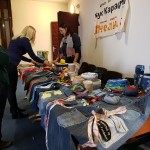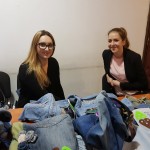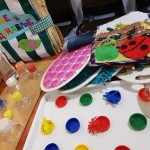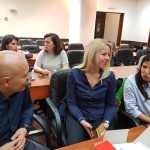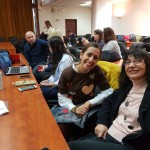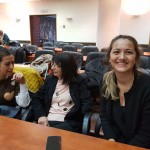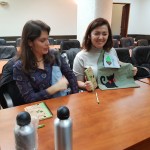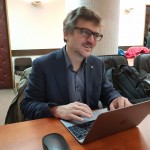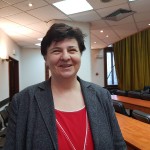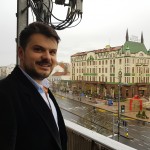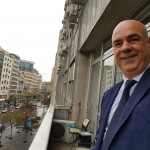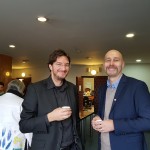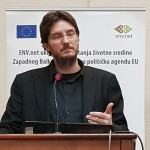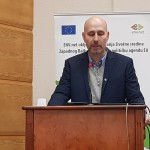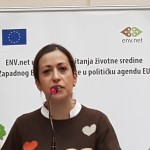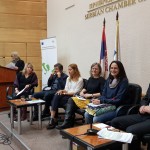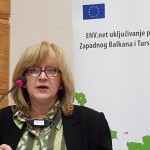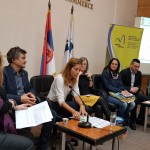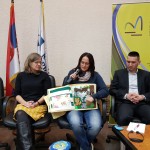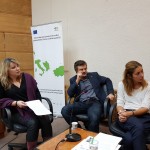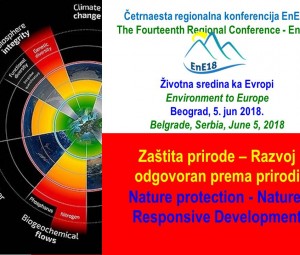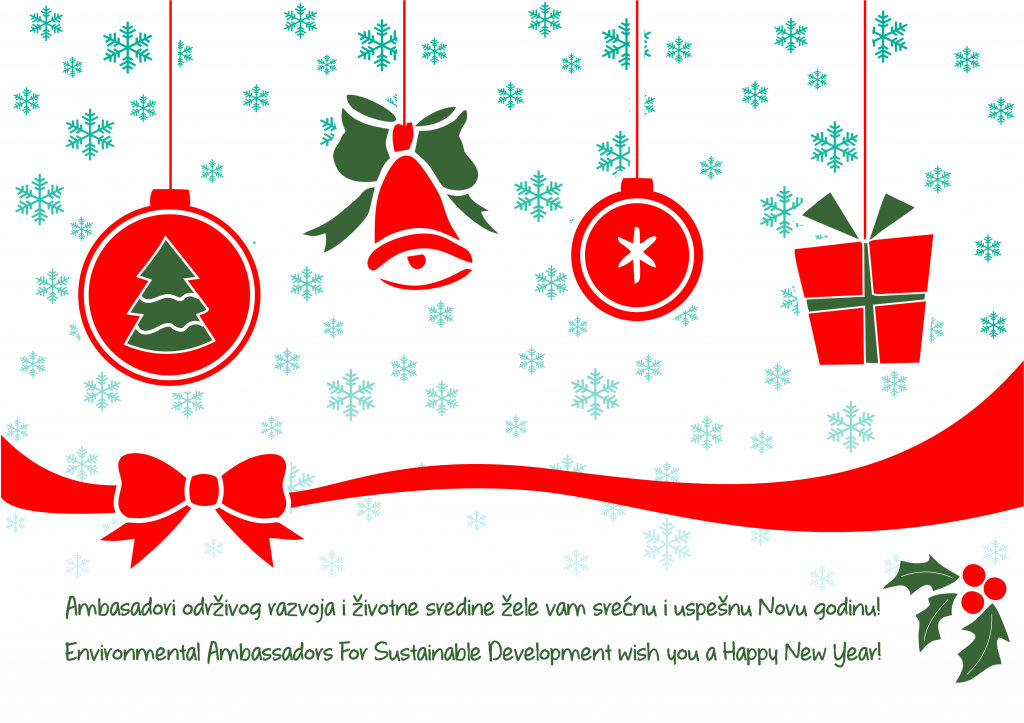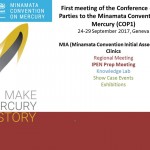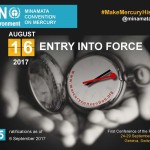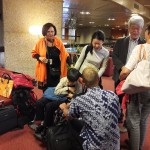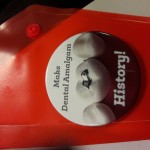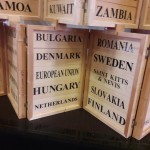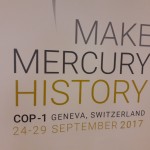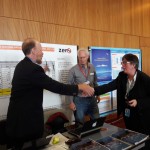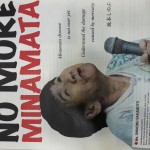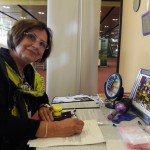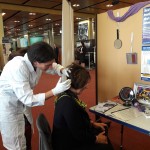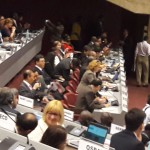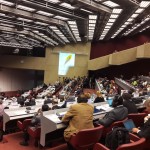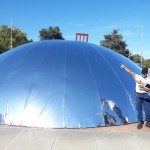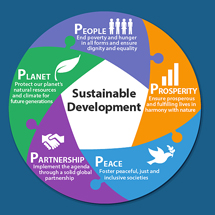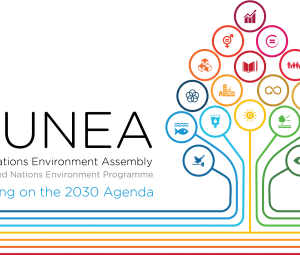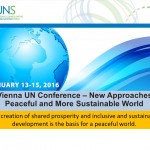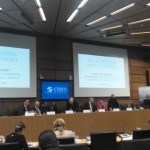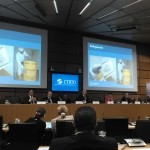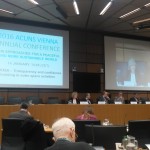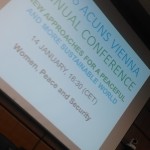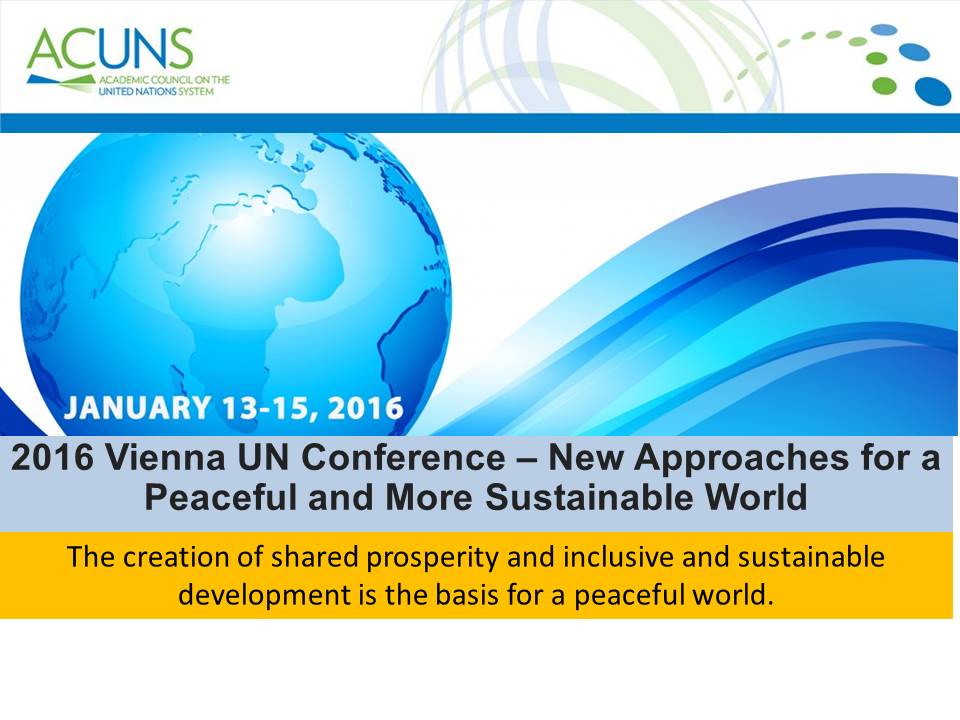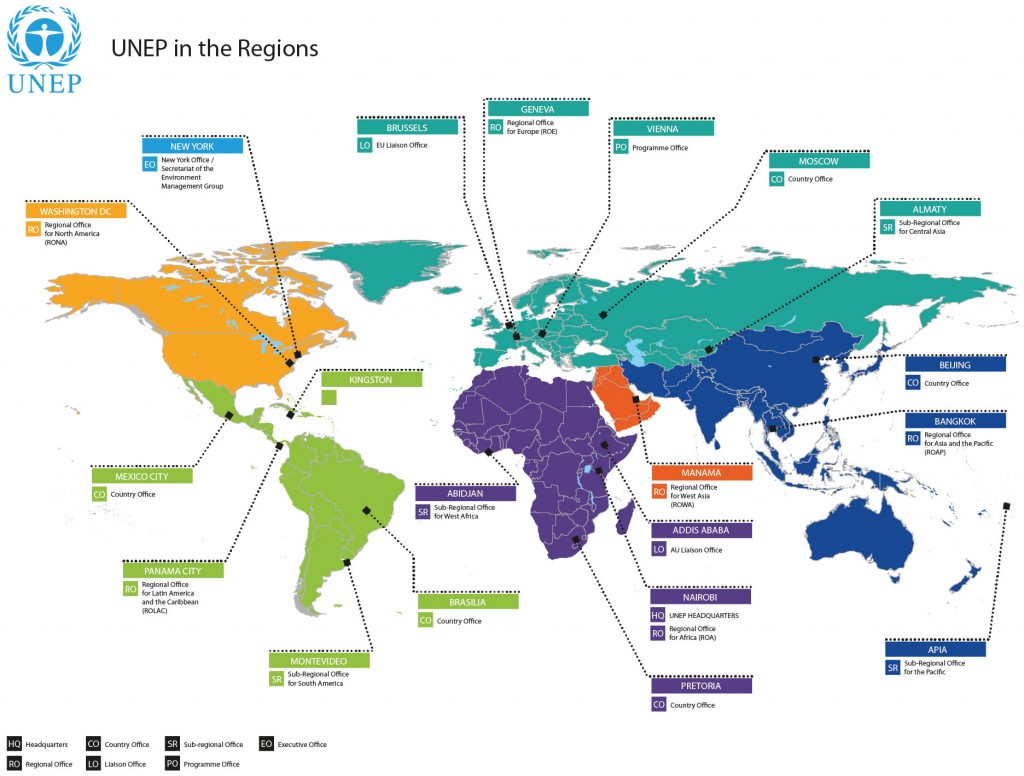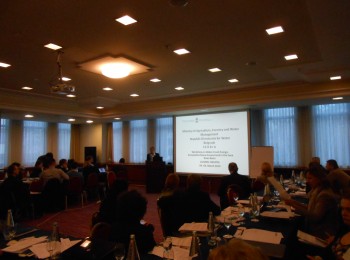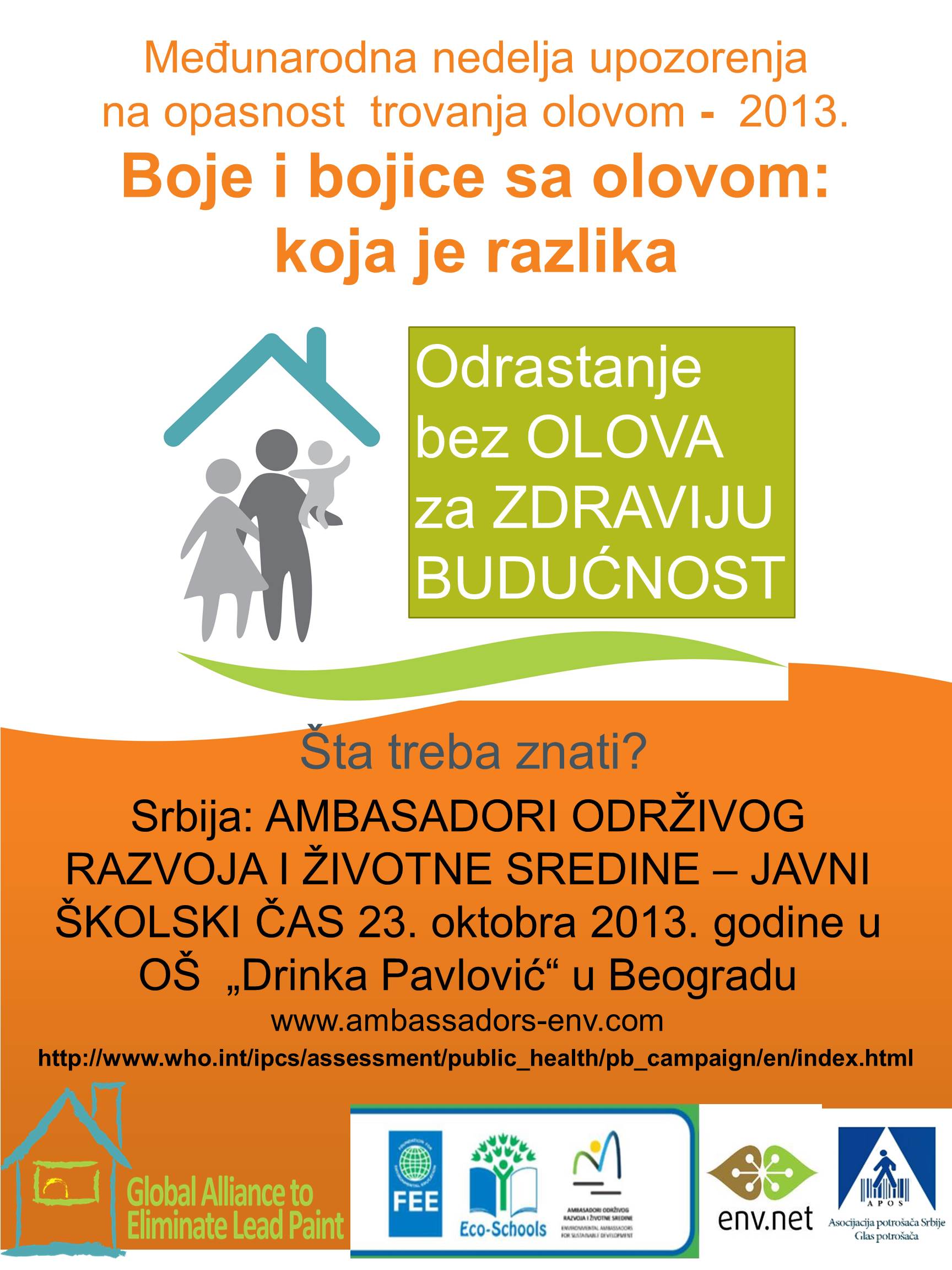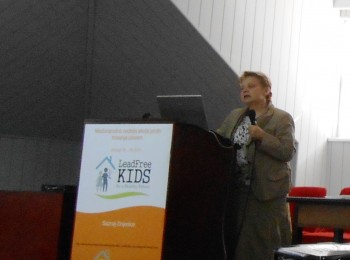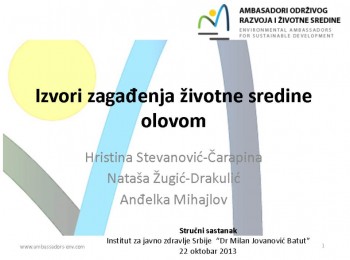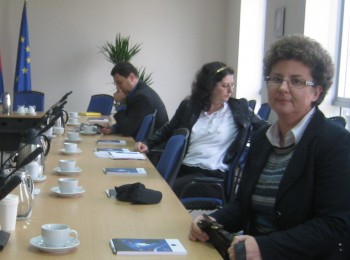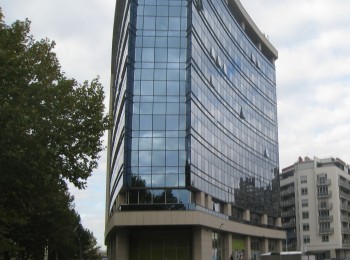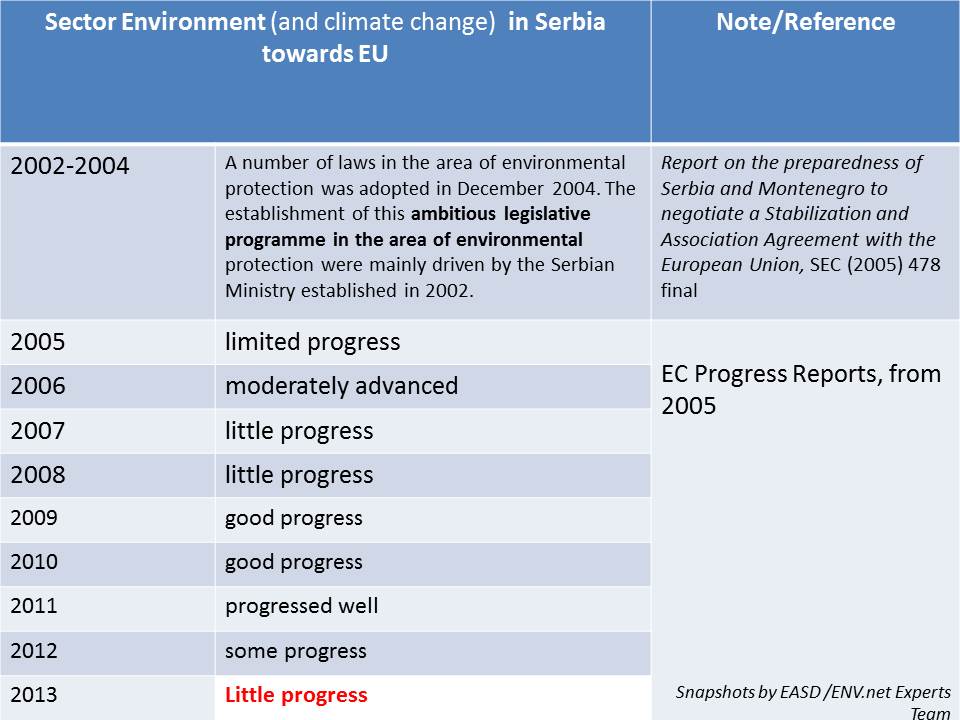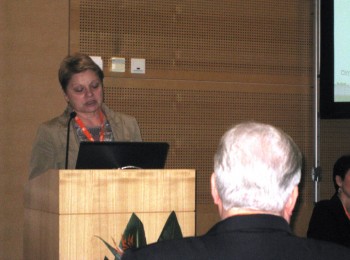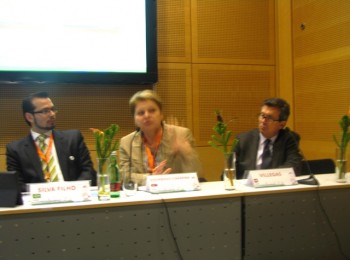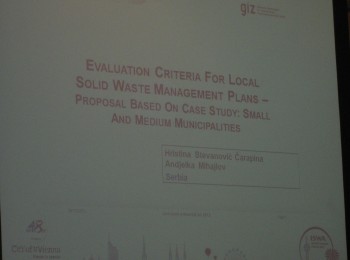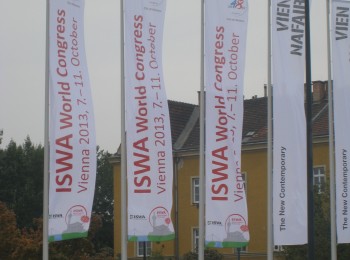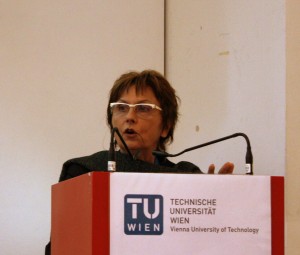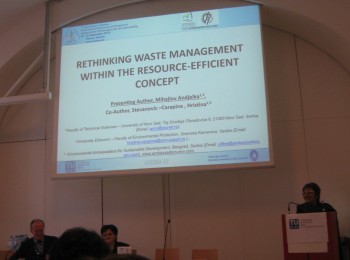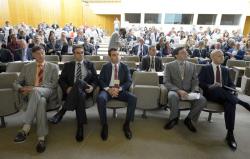Happening at UNEP: OEWG1- Science-Policy Panel and pre-event webinar on Lessons learned for the Science-policy panel on chemicals, waste and prevention of pollution
EASD representative participated on October 6, 2022 in the first part of OEWG1: Science-Policy Panel to contribute further to the sound management of chemicals and waste and to prevent pollution (hybrid format).
The meeting allowed Member States and observers the opportunity to deliver general statements on the establishment of the science-policy panel (EASD is among observers*, in consultative status with ECOSOC and UNEP accredited, SAICM NGO Focal Point, participating also within NGOs Major Group, as well as Women Major Group). In its resolution 5/8, the United Nations Environment Assembly (UNEA), recognizing the importance of science-based assessments to inform decision-making processes, decided that a science-policy panel should be established to contribute further to the sound management of chemicals and waste and to prevent pollution. UNEA further decided to convene, subject to the availability of resources, an OEWG to prepare proposals for the science-policy panel, to begin work in 2022 with the ambition of completing it by the end of 2024.
Before that, on October 5th 2022, EASD representative participated in the second UNEP Webinar: Lessons learned for the Science-policy panel on chemicals, waste and prevention of pollution and organized by the UNEP Secretariat. The webinar focus is on lessons and examples from the Intergovernmental Panel on Climate Change (IPCC), the Intergovernmental Science-Policy Platform on Biodiversity and Ecosystem Services (IPBES), the International Resource Panel (IRP), the Montreal Protocol, and the World Health Organization (WHO), as well as the design and operation of the new Science-policy panel. It was followed by a dialogue between speakers on urgent issues and questions from the chair of the meeting to the panel members.
* Organizations accredited to the Environment Assembly as well as stakeholders admitted as observers to the meetings of relevant chemicals and waste-related multilateral environmental agreements and focal points of the Strategic Approach to International Chemicals Management may also participate as observers.
(Our) Berlin Declaration have the quotation in the European Commissions Report
In the Final report on Assessment of the feasibility of phasing-out dental amalgam, on page 32, used Berlin Declaration as the reference, more precisely:
*2017: Berlin Declaration: After a gathering at a two-day Pan-European Summit to plan the end of amalgam, environmental and consumer NGOs, dental associations, Members of the national parliaments and the European Parliament, academics, and industry issued the “Berlin Declaration to End Amalgam Use in Europe in 2020, available at: https://www.ig-umwelt-
Environmental Ambassadors for Sustainable Development expert participated in Berlin Declaration development! EASD lead Initiative in Serbia.
In 2020 the European Commission recommends the phase out of amalgam. In concluding that the end of amalgam is “technically and economically feasible,” the Commission explains in its report (mentioned above) to Parliament and Council.
· The alternatives are fully acceptable, and dentists fully trained to put them in, quoting: “Mercury free materials are nowadays of good quality, effective restoration methods are widely available and dental schools are increasingly teaching the necessary skills”.
· The risk from BPA (present in some but not all composite) is “negligible’;
· The price differential has shrunk so much such that neither patients nor dentists, will be adversely affected by the phase out;
· 95% of amalgam manufacturers also make alternatives hence they are fully prepared to switch;
Therefore the European Commission will propose a legislation in 2022 for a phase out on a date specific, earlier than 2030.
The report of the Commission focuses equally on the international challenge to end amalgam by promising to turn its attention in 2021 to (a) an amendment of the Minamata Convention and (b) international trade rules to stop amalgam trade.
____________________________
November 2020: Our letter to Commissioner (the European Commission and Commissioner for the Green Deal) Frans Timmermans was well-received
Letter, sent at October 26, 2020 :
Dear Commissioner Timmermans,
European civil society salutes you for your landmark decision to recommend the phase out of dental amalgam to the Parliament and the Council.
Dank u wel!
Your decision makes sense for five solid, incontrovertible reasons:
1. Environment: Dental amalgam is the single largest use of mercury in Europe – and unnecessarily so. The European Union’s science committee SCHER calls amalgam a “secondary poison” because its mercury methylates in fish that children then eat.
2. Technology: Over the past decade the alternative materials have surpassed amalgam in effectiveness – and unlike amalgam, they are minimally-invasive and tooth-friendly.
3. Economics: The prototype is here, because in 2018 amalgam was banned for children, pregnant women, and breastfeeding women, and simple changes in insurance and government programs made the transition seamlessly. The same can now be done for the general population. Moldova, the poorest nation in Europe, banned all amalgam use last year.
4. Preparedness: (1) Manufacturers are ready: virtually all of them make the alternatives, so no jobs will be lost. (2) Dentists are ready: all know how to place the alternatives to amalgam and probably half of them have stopped using amalgam altogether. (3) Consumers are ready: in the European Commission’s internet poll before the Mercury Regulation was enacted, 88% voted in favor of an amalgam ban. (4) Member States are ready: 89% of the Member States (24 of 27), encompassing fully 88% of the population, either have phased out amalgam, have announced a phase-out date, or have low to moderate amalgam use already.
5. Synergies with other EU goals: Whether the goal is specific, such as clean water, or general, such as the Green New Deal with the Chemicals Strategy for Sustainability , the route to a toxic-free Europe must include the end of dental amalgam, a primitive device that pre-dates the Franco-Prussian War and can lead to cracked teeth.
We wish to single out and thank your team at the Commission who laboriously and competently shepherded this issue to the end point of recommending the demise of amalgam for Europe: Aneta Willems, Christopher Allen, David Grimeaud, and Jenny-Johanna Green.
We wish to continue to work with the Commission as you craft legislation for Parliament and the Council to phase out amalgam, and we urge you to set a phase-out date of 2025 or sooner.
Good health to you.
Florian Schulze, European Center for Environmental Medicine (Europe), IG Umwelt-Zahnmedizin (Deutschland)
Elena Lymberidi-Settimo, European Environmental Bureau (Europe)
Dr. Claudia Castell-Exner, President of EurEau – European Federation of Water Services (Europe)
Génon K. Jensen – Health and Environment Alliance (Europe)
Laurette Casal & Antoine Lecuyer, Non Au Mercure (France)
Hanna Schudy, EKO-UNIA (Polska)
Sascha Gabizon, Women Engage for a Common Future (Nederland)
Trine Jørgensen, Foreningen mod Skadeligt Dentalmateriale (Danmark)
Andjelka Mihajlov, Environmental Ambassadors for Sustainable Development (Србија)
Ann-Marie Lidmark, Tandhälsoförbundet (Sverige)
Dr. Hanns Moshammer, ÄrztInnen für eine gesunde Umwelt (Aegu) (Österreich)
Dr. Elena Manvelyan, Armenian Women for Health and Healthy Environment (Hayastan)
Monika Frielinghaus, SHV für Umweltgeschädigte e.V. (Deutschland)
Dr. Stefan Dietsche, European Academy for Environmental Medicine (Deutschland)
Lutz Höhne, Deutsche Gesellschaft für Umwelt-ZahnMedizin e.V. (Deutschland)
Susana Fonseca, ZERO – Associação Sistema Terrestre Sustentável (Portugal)
Reinhard Lauer, Bundesverband der Beratungsstellen für Umweltgifte, insbesondere Amalgam, Schwermetalle und Holzschutzmittel e.V. (Deutschland)
Julia Tudare, Intoxication Métaux Nouvelle-Calédonie (Nouvelle-Calédonie)
Graeme Munro-Hall, World Alliance for Mercury-Free Dentistry (United Kingdom)
Dr. David Harvie-Austin, British Society for Mercury Free Dentistry (United Kingdom)
Leticia Baselga, Ecologistas en Acción (España)
Branislav Moňok, Friends of the Earth – SPZ (Slovenská republika)
Dr. Mihaela Cuțui, Timiș College of Dentists (România)
Dr. Claudia Bottino, Metallica_mente (Italia)
ENV.net
ENV.net project consists of ENV.net 1/2 (2012-2016) and ENV.net 3 (2017-2020) projects. EC supported
ENV.net 1/2: ENV.net – Development of ENV.net in West Balkan and Turkey: giving citizens a voice to influence the environmental process reforms for closer EU integration, EuropeAid/132438/C/
ACT/Multi – 2012/306-642 and 2014/351-610; Partners for project implementation are: Puntosud , EASD , Co-PLAN , EEB – European Environmental Bureau, ATRC and TEMA . The project builds on the experience of an EU-funded project, namely the Environment Forum, implemented in the period 2009-2012, aiming at developing capacities of environmental NGOs to establish a constructive dialogue with national authorities. The present project strategy has been designed to achieve a greater commitment and capacity of a group of CSOs coming from Environment Forum experience and which have agreed on the creation of a new network, the ENV.net, to support the civil activism, give citizens a voice and influence the public reform processes in the approximation to the environment acquis. With the view to further enhance their capacities to work with CSOs and to share experience with other European countries, EEB has accepted to participate and to share its experience. Project objective – Greater commitment and capacity of the ENV.net to give citizens a voice and influence public sector reform processes in the environment sector through analysis, monitoring and advocacy. As one of the outcome National ENV.net networks (to complement Regional ENV.net network) were established; established ENV.net Network in Serbia have 54 organizations (multistakeholders).
ENV.net3: “ENV-net factoring the environmental portfolio for Western Balkans and Turkey in the EU Policy Agenda” – EuropeAid/154870/ACT/Multi ; EASD (Serbia) partners for project implementation are: 4X4X4 Balkan Bridges from North Macedonia, European Environmental Bureau from Belgium, Advocacy Training and Resource Center, from Kosovo*, Green Home, from Montenegro, Lir Evolution, from Bosnia and Herzegovina, TEMA – the Turkish Foundation for Combating Soil Erosion, for Reforestation and Protection of Natural Habitats, from Turkey and Foundation Punto,Sud, from Italy. The project contributes to the improvement of environmental policy-making and implementation in compliance with the EU standards. To this end, the network foresees to contribute to both improved and intensified inter-action among actors (including environmental CSOs, media and policy-makers) and an overall more enabling technical and financial environment where these actors operate. The action sets out to strengthen the profile of ENV.net as the leading network and bridging actor in environmental policy-influencing in the WB and Turkey region (vis-à-vis EU). Further, it foresees introducing and initiating a discussion on the Circular Economy concept in the region, as well as intensifying climate change actions. The action also foresees a number of value-adding, cross-cutting elements such as inter-partner learning/exchange, networking, and thematic organisational support to third parties (i.e. local grass-root organisations, media).
____________________________________
Paper published: Andjelka Mihajlov, Aleksandra Mladenovic & Filip Jovanovic, Contribution to Environmental Communication: comparative analysis of two qualitative methods as the performance to European Union accession, in “Adapt to Survive. The role of social media, sharing and communication to ameliorate this world “, Conference Proceedings Book Edited by Margarita Kefalaki, Communication Institute of Greece (COMinG),Athens, p.57-66 , 2021 ( ISSN: ISBN: 978-618-85622-3-3 ), Available at https://coming.gr/wp-content/uploads/2021/12/1_1_2021_Adapt-to-survive_Book_conf-proceedings_COMinG.pdf
Selected activities:
March 2021:
Information paper on Climate Change and Energy
Information paper on Climate Change and Floods
August 2021: Environmental Communication: Media Archive Reports as a Participant Science Tool
Promotion by media (Da li smo spremni za sve češće poplave?)
December 31, 2020: ENV.net3 project final steps – infographics with documents developed by EASD
____________________________________
Report on monitoring the progress of national environmental legislation (Chapter 27) in 2018, 2019, and half-year 2020, with projections through end-2020 / Izveštaj o monitoringu napredovanja nacionalnog zakonodavstva o životnoj sredini (Poglavlje 27) u 2018., 2019. i prvoj polovini 2020. godine, sa projekcijom do kraja 2020.godine (Extended abstract in English, Full text in Serbian)
Position Paper on COVID 19 and waste management
Circular Economy goes beyond Waste Management presented at EurAsia Waste Management Symposium 2020
Information paper on meaning of Cluster “Green agenda and sustainable connectivity” for Serbia
Reflection paper on air quality data for Serbia
2020 Spotlight Report on Circular Economy in Serbia
EASD publication on circular economy acknowledged by European Circular Economy Stakeholder Platform
Virtual tour on the experience from Italian practices in circular economy
November 2020: Joint civil society statement for Sofia Summit
EASD research presented at EurAsia Waste Management Symposium
October 2020, New Momentum for the Environmental Agenda in the Western Balkans and Turkey?
Establishment of the South East European Platform to Beat Pollution – SEEPP
Recap the moments from EnE19/ENV.net Conference
March 2019: UN Environment : 4th Assembly (and pre- and side-events) , ENV.net related event
November 2018: To report: The first Regional Conference on Circular Economy was success ; The first regional conference on circular economy, Belgrade, November 2018: Agenda
Call for sub-grants (6.novembar 2018: Otvoren poziv za dodelu sub-grantova u okviru ENV.net projekta)
YRE competition: apply before February 1, 2019.; Theme: Energy Efficiency
ENV.net Initiative: to update National Strategy on Sustainable Use of Natural Resources and Goods, by applying Circular Economy concept ; ENV.net Initiative and Knowledge based advocacy: to update National Strategy of Sustainable Use of Natural Resources
Circular economy knowledge based advocacy in Eco-schools network in Serbia
May 2018. Guest lectures made at two Universities in Serbia: “Circular economy is concept and process, and still not full circle” ; Participation at the Green Parliamentary Group meeting
Follow project at : facebook.com/envnetsite/ and www.env-net.org
February 2018 – ENV.net 3 Kick-off Meeting in Tirana
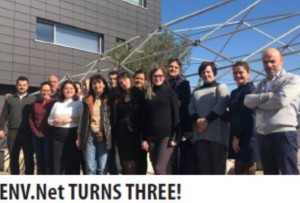 ________________________________________________
________________________________________________
In December 2017. we started with ENV.net 3 : ENV-net factoring the environmental portfolio for Western Balkans and Turkey in the EU Policy Agenda (reference number 2017/394-372)
ENV.net 3 – Serbia team include: Aleksandra Mladenovic –National Coordinator and Manager. In addition, Thematic experts/consultants, on demand, are Prof dr Andjelka Mihajlov and Filip Jovanovic, and Media communication expert, on demend, is Milica Momcilovic.
________________________________________________________________________________
Development of ENV.net in West Balkan and Turkey: giving citizens a voice to influence the environmental process reforms for closer EU integration – EuropeAid/132438/C/ACT/Multi – 2012/306-642 and 2014/351-610 (2012-2016)
The project builds on the experience of an EU-funded project, namely the Environment Forum , implemented in the period 2009-2012, aiming at developing capacities of environmental NGOs to establish a constructive dialogue with national authorities. The present project strategy has been designed to achieve a greater commitment and capacity of a group of CSOs coming from Environment Forum experience and which have agreed on the creation of a new network, the ENV.net, to support the civil activism, give citizens a voice and influence the public reform processes in the approximation to the environment acquis. With the view to further enhance their capacities to work with CSOs and to share experience with other European countries, EEB has accepted to participate and to share its experience. Project objective – Greater commitment and capacity of the ENV.net to give citizens a voice and influence public sector reform processes in the environment sector through analysis, monitoring and advocacy.
Partners for project implementation are: Puntosud , EASD , Co-PLAN , EEB – European Environmental Bureau , ATRC and TEMA . EASD Activity circles represent the scope of our activities.
Project launched site for presentation of activities in all participating countries, as well as facebook page and ENV.net Newsletters.
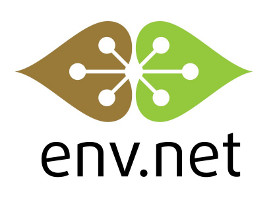 ENV.net 1/2– Serbia team include: Dr Nataša Žugić Drakulić –National Coordinator and Filip Jovanović – project manager , chosen in transparent process by „ Environmental Ambassadors for Sustainable Development“, partner organisation in this project. In addition, National consultant for European integration is Prof dr Andjelka Mihajlov , dr Hristina Stevanović Čarapina is leading expert .
ENV.net 1/2– Serbia team include: Dr Nataša Žugić Drakulić –National Coordinator and Filip Jovanović – project manager , chosen in transparent process by „ Environmental Ambassadors for Sustainable Development“, partner organisation in this project. In addition, National consultant for European integration is Prof dr Andjelka Mihajlov , dr Hristina Stevanović Čarapina is leading expert .
__________________________________
ENV.net Serbia network is functioning : Some of activities could be followed only in Serbian, like calls to participate, and other actions targeted to citizens in Serbia.
**************************************
Highlights: ENV.net publications
- A Guideline of EU Accession Monitoring Tools for CSOs in candidate and potential candidate countries: Chapter 27, (Authors and contributors: Andjelka Mihajlov, Natasa Zugic-Drakulic, Filip Jovanovic, Federico Bastia, Simona Pogliani, Mara Silina, Teida Shehi and Dusko Hristov), Published by Environmental Ambassadors for Sustainable Development with the financial assistance of the EU – ENV.net project document, Belgrade January 2015
- How to influence environmental policy through effective advocacy (Authors: Margherita Tolotto and Mara Silina), ENV.net Advocacy Toolkit, European Environmental Bureau, Brussels, January 2015
- Climate change and challenges of the enlargement (Authors: Anja Kolmuss, Dragana Mileusnic, Zanna Vanrenterghem and Richard Filcak), ENV.net Advocacy Toolkit, European Environmental Bureau, Brussels,September 2016
June 2016: Agenda, WED Messages from Serbia: 12th Regional Conference “Environment to Europe” , REPORT FROM EnE16-ENV.net, BELGRADE, SERBIA
April 2016 – ENV.net Course: CSO Participation in Accession Process , Chapter 27: CSOs participation
March 2016 – New internet portal: Greenweb
January 2016 – Save the date for EnE16-ENV.net Conference ; We participate: Regional Conference: „Sustainability of the FPAs” , Brussels . Water-food-energy-ecosystems nexus assessment in the Sava River Basin – Lessons learned and further steps
October – December 2015 – Ministry support to ENV.net , Event
October – Partnership for Climate Change issue : Serbia’s climate talks – on the way to Paris
June 11 – European Commission Vice-President Mr Maroš Šefčovič had meeting with CSOs in Belgrade. EASD participate!
June 7 – Bicycling-ENV.net promotion in town Gornji Milanovac , Green day in Gornji Milanovac
June 5 – Regional Conference ”Environment to Europe” EnE15 – ENV.net EU Environmental Horizontal Legislation: Methods, Standards and Tools , Invitation , AGENDA , Proc. of papers
May 26, 2015 – Promotional activity
April 21, 2015 – Participation in Public Hearing on Climate Change related challenges in Republic of Serbia
April – THE ELEVENTH REGIONAL CONFERENCE ENVIRONMENT TO EUROPE – ENE15 – ENV.NET acknowledged as the European Sustainable Development Week event
March 22 – Celebrating the World Water Day in Serbia: field visit to Ada Ciganlija
February 2, 2015: Invitation for EnE15-ENV.net Conference launched
January 29, 2015: A Guideline of EU Accession Monitoring Tools for CSOs in candidate and potential candidate countries (ENV.net region): Chapter 27 , document finalized
January , 2015: Promotion of Publication
December 31: Thematic Publication “Environment to Europe”, 2014 ( Tematski zbornik radova “Životna sredina ka Evropi”)
December 12: ENV.net Serbia Seminar: Environmental Education in Schools
November 24-25, ENV.net on the margins of ECF Annual Meeting in Brussels with European Commision
November 4-5 , Regional training on the process of designation of potential Natura 2000 sites
October 30 – Conference “EU accession in the field of environmental protection and the role of local authorities”
October 28 – Ministry of Agriculture and Environmental Protection is co-funded ENV.net project , contract signed
October 22-23, Belgrade: ENV.net training: “EU project design process and Implementation of environmental policy”, Invitation , Agenda , Training
October 2014 – ENV.net brochure published and presented
October 14 – ENV.net related: Participation on Conference “Eco-standards and Education”
October 8 – “Little progress has been made in the areas of environment and climate change”
September 29 – ENV.net Round-table Dialogue for Green Future (ENV.net okrugli sto sa niškim srednjoškolcima “Dijalogom ka zelenijoj budućnosti“) (sub-grant)
September 23-25, Brussels: ENV.net preparatory partnership meeting and Framework Partnership Agreement (FPA) Closing Event for Phase I
September 19-24 , We are following Explanatory Screening for the Chapter 27
August 29 – ENV.net (sub-granting) publication published PUBLICATION : “Species of plants and animals of special conservation concern in EU” , in Serbian
July 27 – Partnership with media – Radio Beograd 2
June 19 – Eco-package initiative as the example environmental education for the future EU citizens
June 5 – CONFERENCE , ENV.net multi-stakeholder Conference on Chapter 27: about 200 participants
June 4 – Meeting with media , Moments from the Conference for Media
May 29, 2014 – ENV.net Serbia Conference organisation on the good track –Agenda for EnE14/ENV.net Conference “Environment to Europe”, June 5, 2014 in SCC – opening at 10:00
May 22-24, 2014 – 4th Partners Meeting in Milan
May 13, 2014 – European Solar Days – participation in promotion of EU environmental values
May 10, 2014 – ENV.net Let us clean up Europe! event: Ada Ciganlija Beograd ; ENV.net Serbia with children, parents and teachers “cleaning up Serbia” , Event in pictures
May 22-24, 2014 – 4th ENV.net Partners Meeting in Milan
May 7-8, 2014 – Some of ENV.net Partners meet in the corridors of ECRAN ECF Meeting
April 25, 2014 – UNEP acknowledged EnE14-ENV.net 2014 Conference as the World Environmental Day Event
April 5, 2014 – Education for future citizens of EU: guest lecturing at the Law Faculty
April 4, 2014 – EU Delegation to Serbia: Consultative Meeting with CSOs on progress towards EU in 2014
Aprl 4, 2014 – We participated to the meeting related to EU-Serbia Civil Society Joint Consultative Committee – JCC
April 2, 2014 – ECRAN NGOs Environment and Climate Change Forum – Evaluation Outcome – Congratulation to ENV.net partners!!!!
April 1, 2014 – Protego and Protecta sign subcontracting contracts
Marc 20-9, 2014 – EASD written contribution to the 2014 Progress Report
March 25, 2014 – Participation on UNECE consultation related to the 3rd EPR for Serbia
March 23, 2014 – ENV.net sub-grants winners announced , ENV.net
March 20, 2014 – We participate on Panel at Faculty of Organisation Sciences – University of Belgrade : Knowledge about Environment
March 9, 2014 – Technical (formal requests) evaluation of sub-grants application finished: 45 projects eligible for further evaluation
March 6, 2014 – Promotion of global activity EARTH HOUR (Marh 29, 20:30-21:30) and call for participation
March 4-6, 2014 – We participate in Zagreb on Workshop on Water-Food-Energy-Ecosystems Nexus Assessment in the Sava River Basin
From February 2014 – EU negotiation process: we are following explanatory screenings
February 26, 2014 – In accordance with procedure, QUESTIONS by potential applicants with our ANSWERS are posted on web site on February 26, at 07:00 , taking in account questions received by February 25 at 23:59
February 20-21, 2014 – EASD-ENV.net Serbia participated in defining the first strategic framework for CSOs development
February 18,2014- Knowledge based advocacy: Environment should be within priorities in the negotiations with EU
February 13, 2014 – Environment in youth policy in Serbia
February 12, 2014 – Meeting with ENVAP2 Project representatives
February 7, 2014 – Participation on Training related the Sector Planning Documents – SPDs
February 1, 2014 – Call of proposals for ENV.net sub-granting in Serbia “EU: we watch and learn to be ready!”
January 30, 2014 – Participation on public hearing by the European Economic and Social Committee (EESC) Study Group
January 30,2014 – Thematic meeting of the SECO mechanism on IPA II programming
January 30, 2014 – Participate in the Mapping of CSOs and other stakeholders in in the process of EU accession negotiations
January 19, 2014 – EASD / ENV.net Team reading of European Parliament Resolution, January 2014
January 07, 2014 – Starting preparation for ENV.net 2014 Round-table / Conference
January 2, 2014 – Attention to ENVIRONMENT in EUROPA DAIRY
_______________________________________________________________
December 23, 2013 – Workshop on environmental values for kindergarten children from Sombor (Minutes) , Participation on meetings in Nature Protection Institute and Agency for Environmental Protection
Decembar 20, 2013 – In media : Promotion of knowledge based information
December 20, 2013 – Environmental Education for future EU citizens , Minutes
December 17, 2013 – ENV.net region news: European Affairs ministers give green light to Serbia’s EU negotiations
December 16, 2013: Workshop for strategic planning of further work SECO mechanism
December 3, 2013 – ENV.net presented to the master students of Faculty of Security Studies
December 2, 2013 – Eye on EU integration process: Parliament of Serbia , Eye on SEE regional cooperation
November 28, 2013 – Meeting FPA project grantees with DG Enlargement representative
November 25, 2013 – Partnership with Media : Partnership agreement with Journalist’ Association of Serbia
Environmental Education of future EU citizens: Activity on November 19,2013
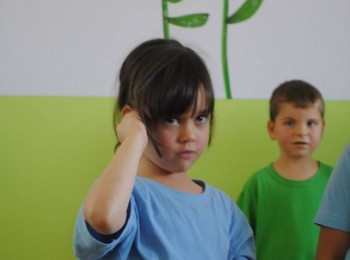 |
Acknowledging the outreach of ENV.net Survey and ENV.net 2013 Roudtable recomendations, EASD – ENV.net Serbia recognized importance of children/youth education for active EU citizenship , through promotion of EU environmental values. We would like to share moments from kindergarten “Pčelice”, from village Šetonje, as promotion event for environmental values in education. With children and teachers, as well as EASD Team, there were Prof dr Ivica Radovic and mr Ljubiša Antonijević, assistant ministers for education and science. |
Partnership with municipality – On November 18., 2013, ENV.net project presented on the Round table in Municipality Vračar (within City of Belgrade).
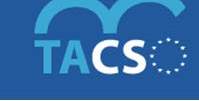 Cooperation with TACSO Serbia – On November 15. 2013, in Belgrade, TACSO Advisory Committee (LAG) organized a consultative meeting with representatives of civil society organizations and networks and Serbian civil society expert community. At the meeting a draft of a document on the assessment needs of civil society in Serbia was discussed.
Cooperation with TACSO Serbia – On November 15. 2013, in Belgrade, TACSO Advisory Committee (LAG) organized a consultative meeting with representatives of civil society organizations and networks and Serbian civil society expert community. At the meeting a draft of a document on the assessment needs of civil society in Serbia was discussed.
 EASD prepared Opinion and contribution to the Draft Strategy Paper for the Republic of Serbia 2014-2020. Through SECO mechanism opinion is sent to Governmental Office for European Integration. Opinion is based on Serbia 2013 Progress Report and Strategy – Reading by ENV.net Serbia Team .
EASD prepared Opinion and contribution to the Draft Strategy Paper for the Republic of Serbia 2014-2020. Through SECO mechanism opinion is sent to Governmental Office for European Integration. Opinion is based on Serbia 2013 Progress Report and Strategy – Reading by ENV.net Serbia Team .
Organisation capacity building process: EASD acknowledged becoming IPEN network Participating Organization
Eye on environmental laws changes: monitoring compliance with EU directives
November 2013. – The third ENV.net partnership meeting in Milan
28. October – Meeting with European Parliamentarians
ENV.net Serbia Team prepared document: Reading of 2013 Progress Report for Serbia and Strategy by ENV.net Serbia Team ( Serbia 2013 Progress Report and Strategy – Reading by ENV.net Serbia Team ).
____________________________________________________
22. and 23 October – Education on sustainable management of lead/chemicals
October 18 – EC Delegation in Serbia, present to relevant CSOs, on October 18, 2013 , Serbia Progress Report 2013, in which the Commission services present their assessment of what Serbia as the candidate country has achieved over the last year.
October 2013 : Participated on different events organized to raise awareness to EU approximation environmental challenges.
Promotion of ENV.net facebook page!
October 2, 2013 – ENV.net team participated at the First SEE Regional Science Promotion Conference (SCIPROM), opened in Belgrade, with the aim to bring together science promotion professionals, practitioners and enthusiasts to share experience and network in order to strengthen the link between science and society in our Region. In the current competitive global environment it is an imperative to enhance economic and social capacities by improving the educational structure of society, inspiring innovation and technological advancement and creating a milieu for appreciation of the value and benefits of knowledge. In the opening address, Minister for Education, Science and Technology development of Serbia underlined, among others the importance of knowledge based actions, as well as the importance of drinking water for development. Conference bring international experts and representatives of international organizations, research and educational institutions, science camps, science communicators, NGOs, private sector and media on board.
This conference justify the path of ENV.net Serbia implementation and development, linking European Integration, Knowledge based activities and sectors : Education, Science and Environment/Natural Resources.
____________________________
Waste management and water management are considered as two important segments of environmental acquis and studies in this area represent an important aspect of ENV.net project. Environmental accession status of Serbia ( waste , water and EIA thematic issues) was presented by EASD team at International Conferences in Vienna (Austria) and Zadar (Croatia), as well as on chemicals at SAICM Regional Meeting (Skopje, Macedonia FYR).
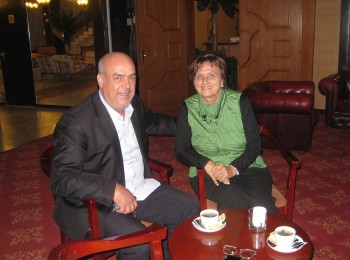 In addition, possible ENV.net partnerships are discussed with other participants and interested CSOs.
In addition, possible ENV.net partnerships are discussed with other participants and interested CSOs.
In Skopje, EASD representative met Macedonian 4x4x4 BB representative on September 26, 2013, to discuss possible enlargement of ENV.net project to Macedonia.
________________________________________
Promotion of ENV.net site in place Join us!
Added value for ENV.net Serbia is EASD activities within the development of Post-Rio+20 Agenda.
Office for Cooperation with Civil Society organized on September 6, 2013 Conference devoted to negotiating Chapter 27 (Environment). Presentation (in Serbian) from the Conference includes: Poglavlje 27 pregovori, Iskustvo R Slovenije, Natura 2000 Ministarstvo, Uloga civilnog drustva u monitoringu, Natura 2000 NGO )
September 2013: ENV.net project presented in the Ministry of Education, Science and Development of Serbia (Meeting of the National Committee for Environmental Education Programs)
August 2013. – Snapshot analysis : While waiting for EC 2013 Progress Report
___________________________________________________________________
EASD monitored the implementation of SDGs
As one of the partner in Women2030 project, leaded by WECF , Environmental Ambassadors monitored the implementation of the SDGs and collected primary data thanks to questionnaires delivered and focus group discussions organized with community groups. The results presented provide an overview of the community-based data collected through Eco-schools Serbia network, as part of the Gender Assessment.
Global Meeting & Forum on Chemicals and Waste, 2020
EASD participated at IPEN Global Meeting and Forum on Chemicals and Waste, among 93 environmental and health leaders; international health and science experts; and government and UN agency representatives from 51 countries.
EASD Honorable President presented ” Initiatives towards MIA – Minamata Initial Assessment implementation: in coal combustion, application, use and disposal of dental amalgam fillings and management of waste with mercury”. Objectives of the Meeting & Forum is to:
• Strengthen the Toxics-Free Future Global Movement
• Learn from Each Other and Share Skills
• Promote Organizational Capacity-Building & Development
• Celebrate Achievements
• Reflect on the Evolving Global and National Policy Landscapes
• Strategize around IPEN’s 2030 Goals & Program
• Elevate the Profile of Chemicals & Waste Issues
Meeting was held @ Kuriftu Resort, Lake Bishoftu@ Ethiopia – The Land of Origins (coffee is great!), a symbol of African freedom, with more than 100 million people and 86+ languages.
Establishment of the South East European Platform to Beat Pollution – SEEPP
Sub-Regional Consultation Meeting on the Establishment of the South East European Platform to Beat Pollution – SEEPP was held on June 24-25, 2019, at the premises of Vienna International Center. The meeting was organised by UN Environment – Vienna Programme Office in the framework of the project “Regional Cooperation in South Eastern Europe to Beat Pollution”, funded by the Directorate for Sustainable Development, Environmental Damage, European Union and International Affairs of the Italian Ministry of Environment, Land and Sea. This meeting is continuation of the process started in December 2019, during the Ministerial conference held in Belgrade, and side event, organized in margins of UNEA4, in March 2019, at the premises of UN Headquarter in Nairobi.
The countries of South East Europe and specifically countries from the Western Balkans, should stronger address crucial reforms and complete political, economic and social transformation, in order to fulfill requirements on their respective European paths. This is strong connected with complying with the EU Environmental acquis, what means opening of negotiations on Chapter 27 on Environment and Climate Change, which has not realized yet for some countries. At the global level, the 2030 Agenda for Sustainable Development, including its 17 Sustainable Development Goals (SDGs) is going to shape national development plans over the next more than 10 years. Progress towards achieving the Sustainable Development Goals targets can be obtained by tackling pollution through existing agreements and synergies with different international initiatives.
Taking into account need for urgent action to beat pollution at all levels, supported by all sectors and involving all relevant stakeholders, South East European Platform to Beat Pollution – SEEPP should be established, with participation not only respective SEE countries, but also with all other actors having interest in this region.
During the Sub-Regional Consultation Meeting, civil society role in the future Platform was discussed among representatives of governments, CSOs and UN bodies. Possible roles of CSOs might be following:
Civil society contribution to the thematic clusters
Preparation of an assessment of possible civil society partners
Platform membership (including Taskforces when relevant)
Using CSOs Networks to communicate the work of the platform and to reach out to citizens
Regarding the last mentioned, Env.net network was presented as good and stable regional network, that can have high impact in future Platform. Environmental Ambassadors for Sustainable Development, together with Env.net partners from EEB and Co-plan, presented current state of the progress during seven years of existing of the Env.net. The main discussion, which is still opened, is regarding the self-designation of civil society organisations and a role within the Taskforce of the Platform. In the next period, it is expected that this and other crucial issues will be clarified, with active participation and contribution of CSOs representatives from the SEE region.
To report: The first Regional Conference on Circular Economy was success
The first regional conference on circular economy, was held on November 2018 in Belgrade. See Agenda
At the beginning, as the host, EASD President Aleksandra Mladenovic, welcome participants to Belgrade. She also thanks to the Eco-Schools (for nice bags for participants) and to Serbian Chamber of Commerce.
Representative of EU Delegation in Serbia Antoine Avignon address the Conference .
In introductory address, Lead Partner Co-PLAN, Albania, representative Rodion Gjoka, thanks to Serbian Chamber of Commerce and EASD, for hosting and organizing Conference. He underlined that ENV.net is introducing circular economy concept in region.
On behalf of Serbian Chamber of Commerce (SCC) Isabel Airas informed on existence of Unit for Circular Economy in SCC , and noted positive and possible positive future cooperation with EASD.
Miroslav Tadic, from UNDP Serbia presented circular communities and circular economy relation with climate smart development. Special attention in presentation is dedicated to circular economy from climate change mitigation perspective in Serbia and links with Paris Agreement, highlighting UNDP Serbia ongoing project
Natasa Djereg, from NGO CEKOR from Subotica, Serbia, talk about climate action as incentive of circular economy, pointing out needs of decarburization of energy sector , Regional Energy Community Treaty and external costs for energy production, as well as moral/ethics when revise National Spatial Plan.
Conference continued with ENV.net Partners presentations.
On behalf of Punto.sud – Italy, Eleonora Puddu, express proudness of Punto.sud on ENV.net network, now and in the future (to note that Punto.sud was Lead Partner for 6 years in ENV,net 1 and ENV.net2 projects). She presents assessment methodology and ENV.net challenges.
Conference is followed by presentations by ENV.net Partners from Albania, Bosnia and Herzegovina, FYR Macedonia, Montenegro, Turkey and Serbia.
Conference is followed by the Panel on Circular Economy , chaired by respective journalist Milica Momcilovic. Panelist are: Maja Krunic (Serbian Environmental Protection Agency/Ministry of Environmental Protection ), Richard Filcak (EEB, Brussels – ENV.net Partner organization), Jelena Kiš ( Ball Packaging Europe), Isabel Airas (Serbian Chamber of Commerce), Radmila Jokić (teacher from Sombor) and Zoran Jakovljevic ( GIZ Serbia).
Questions to Panelists are:
1. In your opinion, what are the main challenges/obstacles to introduce circular economy concept into national economy?
2. What is your experience regarding circular economy topic?
3. Is there any doubt regarding sustainability of this concept?
4. Is there any differences regarding implementation of this concept in developed and developing countries/countries in transition?
5. How to engage community and citizens to follow circular economy concept and implement it in everyday life?
6. if any other question?
Panelist main messages are: -importance of: knowledge and education, financial sources, consumption patterns, and coordination of all activities and sectors; -circular economy concept is complex, but present clear signal for future businesses; – corporate sustainability is important; it is important that region is connected; – the importance of sustainable production and cooperation on different levels; – “responsible entrepreneurship” are the key words for circular economy concept in practice; -difficulties in waste management practice influence possible achievements in circular economy.
The first regional conference on circular economy, Belgrade, November 2018: Agenda
1st regional conference on circular economy
Belgrade, 25-27 November, 2018
Serbian Chamber of Commerce, Terazije 23, II floor
Agenda
November 25, 2018
Participants and guests arrival to Belgrade, Env.net project Steering Committee meeting
November 26, 2018, Serbian Chamber of Commerce, Terazije 23/II
9.00-9.30 Registration
9.30-10.00 Introductory words: ENV.net representatives/partners (EASD, Co-Plan); Serbian Chamber of Commerce; EU Delegation (tbc)
10.00-10.20 The toolkit for the preparation of a general assessment regarding the state of the art of the circular economy, Ms. Eleonora Puddu, Punto.sud, Italy
10.20-10.45 Circular Economy and Climate Smart Development (Circular Communities), Mr. Miroslav Tadic, UNDP Portfolio Manager
10.45-11.00 Climate action as an incentive to transition to a circular economy, Mrs. Natasa Djereg, CEKOR
11.00-13.15 Circular economy in Western Balkan and Turkey, step forward (Albania, BiH, FYR of Macedonia, Montenegro, Kosovo*, Turkey, Serbia – 15 minutes per Partner)
13.15-14.00 Lunch break
14.00-15.30 Panel discussions: “Circular economy in theory and practice”.
Participants: Mr. Richard Filcak, EEB, Mrs. Jelena Kis (Ball Packaging Europe), Mr. Sinisa Mitrovic (Serbian Chamber of Commerce), Mrs. Maja Krunic (Serbian Environmental Protection Agency), Mrs. Radmila Jokic, Eco-school teacher (Sombor), Zoran Jakovljev (GIZ RS)
Moderator: Ms. Milica Momcilovic, journalist
Questions to Panelists:
- In your opinion, what are the main challenges/obstacles to introduce circular economy concept into national economy?
- What is your experience regarding circular economy topic?
- Is there any doubt regarding sustainability of this concept?
- Is there any differences regarding implementation of this concept in developed and developing countries/countries in transition?
- How to engage community and citizens to follow circular economy concept and implement it in everyday life?
- if any other question?
15.30-16.30 Discussion and conclusion
16.30 Closing of Conference
November 27, 2018
9.00 – 11.00 Field trip to Feplo, Cacak
11.00 – 13.00 Visiting of the factory
Join us for June 5th: Conference Agenda is available
Pictures from the event:
Otvaranje / Opening
Panel o zastiti prirode / Panel on Nature Protection
UNEP nagrade / UNEP@WED
YRE awwards/ Nagrade Mladih ekoreportera & https://www.facebook.com/mladiekoreporteri/
Prezentacija radova / Presentations
The Fourteenth Regional Conference – EnE18
Environment to Europe
Belgrade, Serbia, June 5, 2018
Nature protection – Nature-Responsive Development
Conference Agenda, draft, as on 22/05/2018
Conference “Environment to Europe” – EnE18 is an official event that marks the UN World Environment Day (WED) in the Republic of Serbia and region. Since its beginning in 1974, World Environment Day has developed into a global platform for raising awareness and taking action on urgent issues from marine pollution and global warming to sustainable consumption and wildlife crime. “Beat Plastic Pollution”, the theme for World Environment Day 2018, is a call to action for all of us to come together to combat one of the great environmental challenges of our time. Chosen by this year’s host, India, the theme of World Environment Day 2018 (If you can’t reuse it, refuse it) invites us all to consider how we can make changes in our everyday lives to reduce the heavy burden of plastic pollution on our natural places, our wildlife – and our own health. In recent years, millions of people have taken part in thousands of registered activities worldwide.
Conference “Environment to Europe” – EnE18 is an official event that marks the European Sustainable Development Week (ESDW) in the Republic of Serbia. The ESDW is a European-wide initiative to stimulate and make visible activities, projects and events that promote sustainable development and the Sustainable Development Goals (SDGs). It takes place every year from 30 May until 5 June. The ESDW aims to raise awareness for the 2030 Agenda in Europe and calls upon local stakeholders to actively engage with sustainable development, in general, and the SDGs, in particular.
The Fourteenth Regional Conference EnE18 is thematically focused on Nature protection – Nature-Responsive Development (2018). Since 2005, when we established the Conference, we have around 2.500 participants from 15 countries and presented about 350 research and scientific papers. This year is also fourteen years of partnership between “Environmental Ambassadors for Sustainable Development“ with the Chamber of Commerce and Industry of Serbia“.
Conference Agenda
as on 22/05/2018; possible changes of Agenda when confirmation received
5. jun June 5th
| Velika sala u PKS, II sprat, Terazije 23, Beograd | Main Hall, 2nd floor – Serbian Chamber of Commerce, Terazije 23, Belgrade |
9:00 – 10:00 Registracija učesnika / Registration
10:00 – 10:50 Uvodna obraćanja / Opening remarks
Moderator: dr Uroš Rakić, on behalf of organisators
- H.E. Ratko Vlajkov, Ambassador, Embassy of the Republic of Bulgaria in the Republic of Serbia – The Bulgarian presidency of the Council of the EU / Ambasador, Ambasada Republike Bugarske u Republici Srbiji
- H.E. Lazar Mirkić, Ambassador, Embassy of Bosnia and Herzegovina in the Republic of Serbia / Ambasador, Ambasada Bosne i Hercegovine u Republici Srbiji
- Robert Nygård, The First Secretary Responsible for Environmental Issues, Swedish Embassy in the Republic of Serbia / Prvi sekretar odgovoran za pitanja životne sredine, Ambasada Švedske u Republici Srbiji
- Delegation of EU in Serbia, representative / Delegacija EU u Srbiji, predstavnik/ (potvrđeno/confirmed, representative tbd)
- Minister for Environment / Ministar za zaštitu životne sredine (invited/pozvan)
- Stanojla Mandić, Deputy Commissioner for Information of Public Importance and Personal Data Protection of the Republic of Serbia / Zamenica poverenika za informacije od javnog značaja i zaštitu podataka o ličnosti Republike Srbije
- Dr Deni Porej, Director of WWF Adria, WWF Mediterranean Programme Office / Direktor WWF Adria, WWF Regionalna kancelarija
- Aleksandra Šiljić Tomić, Project Coordination Specialist, UN Environment Republic of Serbia / Koordinator projekta, Kancelarija UN za životnu sredinu, Republika Srbija
- dr Nenad Sekulić, Head of Department for Biodiversity and Ecological Network, Institute for Nature Conservation of Serbia / Načelnik odeljenja za biodiverzitet i ekološke mreže, Zavod za zaštitu prirode Srbije
- Goran Krnčević, Assistant Director of the Sector for Legal, Financial and Administrative Affairs, Institute for Nature Conservation of Vojvodina Province / Pomoćnik direktora za pravne, finansijske i opšte poslove, Pokrajinski zavod za zaštitu prirode
- Ljubica Naumović, Environment Executive, Tetra Pak Production / referent za zaštitu životne sredine, Tetra Pak Production
- Dušan Stokić, Co-organizer of the EnE18 Conference, Head of the Department for Environment, Technical Regulation, Quality and Social Responsibility, the Chamber of Commerce and Industry of Serbia / suorganizator EnE18 Konferencije, Rukovodilac Službe za životnu sredinu, tehničke propise, kvalitet i društvenu odgovornost, Privredna komora Srbije
- prof. dr Dunja Prokić, the EnE18 Conference Chair person, Environmental Ambassadors for Sustainable Development / predsedavajuća EnE18 Konferencije, Ambasadorka održivog razvoja i životne sredine
10:50 – 11:00 Aleksandra Mladenović, Environmental Ambassadors for Sustainable Development President/ Predsednica Ambasadora održivog razvoja i životne sredine, Plenary, Panel Theme and Panelists / Predstavljanje plenarnog izlaganja, panela i panelista
11:00 – 11:20 Plenary lecture / Plenarno predavanje
Begona Matilla Soloaga, Human Dynamics, Team leader, TA for strengthening the National Nature Protection System for implementation of Natura 2000 requirements / Human Dynamics, tim lider, NATURA 2000 Turska. Focus : NATURA 2000 in Turkey – project outputs / NATURA 2000 u Turskoj – rezultati projekta.
11:20 – 13:30 Panel on Nature Protection and Nature – Responsive Development / Panel na temu Zaštita prirode i razvoj odgovoran prema prirodi
Moderator: Milica Momčilović, journalist, Vice President of World Federation of Science Journalists (WFSJ) / novinar, potpredsednica Svetske federacije naučnih novinara
Panelists (Plenary Session) / Učesnici Panela (Plenarna sesija) :
dr Deni Porej, Director of WWF Adria, WWF Mediterranean Programme Office / Direktor WWF Adria, WWF Regionalna kancelarija. Focus : WWF and Nature Protection, Nature – Responsive Development / WWF i zaštita prirode, razvoj odgovoran prema prirodi.
prof. dr Predrag Simonović, Faculty of Biology, University of Belgrade / Biološki fakultet, Univerzitet u Beogradu . Focus: An invasive species of fish and links between fisheries management and aquaculture in Serbia in the process of EU accession / Invazivne vrste riba i veza između ribolovnog upravljanja i akvakulture u Srbiji u procesu pristupanja EU
mr. Danko Jović, Institute for Nature Conservation of Serbia / Zavoda za zaštitu prirode Srbije. Focus: State in the Republic of Serbia in respect of nature and oblidations of Serbia in the process of accession to the EU in this area / Stanje u Republici Srbiji u vezi zaštite prirode i obavezama Srbije u procesu pristupanja EU u ovoj oblasti.
Klara Sabadoš, Institute for Nature Conservation of Vojvodina Province / Pokrajinski zavod za zaštitu prirode. Focus: The situation regarding nature protection and the NATURA 2000 network in Serbia / Situacija oko zaštite prirode i mreže NATURA 2000 u Srbiji.
Nikola Stanojević, Bird Protection and Study Society of Serbia / Društvo za zaštitu i proučavanje ptica: Protection of birds and obligations of the Republic of Serbia in the process of EU accession in this area / Zaštita ptica i obaveze Republike Srbije u procesu pristupanja EU u ovoj oblasti.
13:30 – 13:40 Technical Break / Tehnička pauza
13:40 -14:00 Awards for the winners of the competition „Beat plastic pollution! If you can’t reuse it, refuse it!“ organized among elementary school classes by UN Environment and partners: Environmental Ambassadors for Sustainable Development and Forestry and Environmental Action for celebration of the World Environment Day 2018 in Serbia / Dodela nagrada timovima iz osnovnih škola u Srbiji, pobednicima na konkursu „U koštac sa plastikom!“ tj. „Pobedi zagađenje plastikom! Ako ne možeš da je ponovo upotrebiš, ne koristi je!“ koji je Agencija Ujedinjenih nacija za životnu sredinu organizovala zajedno sa partnerima: Ambasadori održivog razvoja i zaštite životne sredine i Inicijativa za šumarstvo i životnu sredinu – fea povodom obeležavanja Svetskog dana zaštite životne sredine 2018. u Srbiji.
Obraćanje: Aleksandra Šiljić Tomić, specijalista za koordinaciju projekata Agencije Ujedinjenih nacija za životnu sredinu (UN Environment)
Awarded / Nagrađeni radovi:
1. mesto – rad „Žutoplovac“, OŠ „Sveti Georgije“, Uzdin; Nagradu prima mentor Tatjana Romanov, profesor razredne nastave
2. mesto – rad „Eko brodić – Drugarstvo“, OŠ „Rade Dodić“, Milutovac, izdvojeno odeljenje Poljna; Nagradu prima mentor Suzana Jovanović –Stanisavljević
3. mesto – rad „Brod prijateljstva“, OŠ „Petefi brigada“, Kula; Nagradu prima mentor Marijana Kolarić
Photo exhibition – slideshow of vessels (ships, sailboats, etc.) of all elementary school classes participated in the competition is presented in the front of the Main Hall.
14:00 – 14:20 Awards for the best Young Reporters for the Environment (YRE) in 2018: “Energy Efficiency of the Eyes of Young Reporters for the Environment” / Dodela nagrada najboljim Mladim Eko-reporetima u 2018. godini: “Energetska efikasnost očima Mladih Eko-reportera”
Obraćanje: Dijana Šarac, koordinator Programa Mladi Eko-reporteri
Awarded/ Nagrađeni radovi:
Uzrasna kategorija od 11 do 14 godina
– U kategoriji članaka:
- mesto David Bradić iz OŠ „Rade Dodić“, Milutovac, naziv članka: Sunce i ti
- mesto Lena Veličić, Dunja Milijanović iz OŠ „Sveti Sava“, Čačak, naziv članka: Štednja energije
- mesto Milica Đurić, Teodora Nikša, Milica Popović, Živojin Mišić, Marko Kuleško iz OŠ „Marija Trandafilović“, Veternik, naziv članka: Udaljenost Kejptauna je relativna stvar
– U kategoriji fotografija:
- mesto Milan Pavlović iz OŠ Stojan Novaković, Blace, naziv fotografije: Energetska efikasnost saradnjom svih nas
- mesto Jovana Dimitrijević iz OŠ Sveti Sava, Pirot, naziv fotografije: Moj grad vodi računa o energetskoj efikasnosti
- mesto Ilija Radojković iz OŠ Ratko Mitrović, Čačak, naziv fotografije: Sunce na našem krovu
– U kategoriji videa:
- mesto Đina Ranđelović, Iva Ignjatović iz OŠ „Sveti Sava“ Pirot, naziv videa: Unutrašnji bazen u Pirotu
- mesto Nikola Dragić, Ognjen Kostić, Aleksa Vacić, Dimitrije Stanković iz OŠ „Sveti Sava“, Pirot, naziv videa: Vodenica
- mesto Strahinja Marseni, Anja Lazović, Vladimir Konstantinovića, Andreja Đurkovića, Teodora Radivojević iz OŠ Drinka Pavlović, Beograd, naziv videa: Energetska efikasnost
Uzrasna kategorija od 15 do 18 godina
– U kategoriji članaka:
- mesto Jefimija Najdić iz Gimnazija Vranje, naziv članaka: Dozvolite plućima naše planete da dišu
- mesto Marija Dibrani iz MTŠ „14 oktobar“, Kraljevo, naziv članka: Zelena energija i zdrav život
- mesto Stefan Zeremski, Bojan Zakonović, Vasilije Radović iz ETŠ „Rade Končar“, Beograd. Naziv članka: Sekcija za energetsku efikasnost
– U kategoriji fotografija:
- mesto Olga Đurović iz Gimnazije „Takovski ustanak“, Gornji Milanovac, naziv fotografije: Krov
- mesto Vladana Stanković iz Prehrambeno-hemijske škole, Niš, naziv fotografije: Nova rasveta u Doljevcu
– U kategoriji videa:
- mesto Anja Aranđelović, Milica Jovanović, Gordan Mišić iz Tehničke škole, Paraćin, naziv videa: Menjamo navike da ne bude panike
- mesto Natalija Stanković iz Savremene gimnazije, Beograd, naziv videa: Energetska efikasnost
- mesto 14 učenika iz Medicinske škole, Vranje, naziv videa: Odakle dolazi električna energija
– Uzrasna kategorija od 19 do 21 godine
U kategoriji fotografija:
- mesto Tijana Krnjaić sa Fakulteta Političkih nauka, naziv fotografije: Toplotna pumpa
– U kategoriji videa:
1.mesto Anđela Stošić sa Fakulteta Političkih nauka, naziv videa: Solarni paneli
14:20-15:00 Break / Pauza
15:00-18:00 Presentations / Usmena izlaganja radova
Moderatori: prof. dr Hristina Stevanović Čarapina, prof. dr Nataša Žugić Drakulić, prof. dr Dunja Prokić, dr Uroš Rakić
Plenary lecture / Uvodno predavanje
Uticaj Sporazuma iz Pariza o promeni klime na razvoj ekološkog acquis-a i prenošenje pravnih standarda zaštite biodiverziteta i očuvanja šuma u pravni sistem Srbije, MIRJANA DRENOVAK IVANOVIĆ, PRAVNI FAKULTET, UNIVERZITET U BEOGRADU
Oral presentations / Usmena izlaganja
GEOGRAPHIC MONITORING OF FOREST BIODIVERSITY IN BOSNIA AND HERZEGOVINA, ADI OPERTA, Department of Geography, Faculty of Science, University of Sarajevo, Bosnia and Herzegovina, Mujo Hasanović, Irma Mahmutović-Dizdarević, Department of Biology, Faculty of Science, University of Sarajevo, Bosnia and Herzegovina
KREIRANJE GIS BAZE O STANJU REČNOG TOKA U FUNKCIJI DIZAJNA ADEKVATNIH REŠENJA OČUVANJA PRIRODE, SLAĐANA ĐORĐEVIĆ, POLJOPRIVREDNI FAKULTET, UNIVERZITET U BEOGRADU, MILOŠ NINKOVIĆ, GEOGRAFSKI FAKULTET, UNIVERZITET U BEOGRADU, DUŠICA PEJIĆ, FAKULTET BEZBEDNOSTI, UNIVERZITET U BEOGRADU, BORIS KATIĆ, OPŠTINA MALI ZVORNIK, SLOBODAN MILOŠEVIĆ, FAKULTET ZA PRIMENJENU EKOLOGIJU FUTURA, UNIVERZITET SINGIDUNUM
CLADOCERANS SEASONAL DYNAMICS AT SNR ”CARSKA BARA”, Martina Mezei, Aleksandra Petrović, Vojislava Bursić, Tijana Stojanović, Jasna Grabić, Branka Ljevnaić-Mašić, FACULTY OF AGRICULTURE, UNIVERSITY OF NOVI SAD, SERBIA
PREGLED VRSTA PRIORITETNIH ZA NATURU 2000 U FAUNI ZASAVICE, MIHAJLO STANKOVIĆ, pOKRET GORANA SREMSKA MITROVICA
PRILOG FAUNI KIČMENJAKA N.P. KOZARA – MEĐUNARODNO ZNAČAJNE VRSTE, Mihajlo Stanković, Pokret gorana Sremska Mitrovica, Dragan Romčević, NACIONALNI PARK KOZARA
ZAŠTITA PRIRODE U GRADU BEOGRADU, MILAN MARTINOVIĆ, GEOGRAFSKI FAKULTET, UNIVERZITET U BEOGRADU
INFLUENCE OF DROUGHT ON WATER QUALITY AT SPECIAL NATURE RESERVE “CARSKA BARA”, Radoš Zemunac, Jasna Grabić, Vojislava Bursić, Aleksandra Petrović, Martina Mezei, Faculty of Agriculture, University of Novi Sad, Ildiko Grnya, Special Nature Reserve “Carska bara”, Branka Ljevnaić-Mašić, Faculty of Agriculture, University of Novi Sad
ŠUME HRASTA LUŽNJAKA (Quercus Robur Lat.) – INDIKATOR KLIMATSKIH PROMENA NA PODRUČJU ŠUMADIJE, SEVERIN ŠIKANJA, FAKULTET ZA PRIMENJENU EKOLOGIJU – FUTURA, UNIVERZITET SINGIDUNUM
MERE ZAŠTITE U SPOMENIKU PRIRODE ”PARK BUKOVIČKE BANJE”, STEFAN dABIŽLJEVIĆ, ALEKSANDAR ĐORĐEVIĆ, MILOŠ TOMOVIĆ, VISOKA ŠKOLA STRUKOVNIH STUDIJA ARANĐELOVAC
ZAŠTITA PRIRODE U TEHNOLOŠKIM GRADOVIMA, MILAN MARTINOVIĆ, GEOGRAFSKI FAKULTET, UNIVERZITET U BEOGRADU
INVESTIGATION OF MACRO- AND MICROELEMENTS IN SOIL, GRAPEVINE AND AIR IN ORGANIC VINEYARD: BIOMONITORING, ECOLOGICAL IMPLICATIONS AND HEALTH RISK ASSESSMENT, TIJANA Milićević, Mira Aničić Urošević, INSTITUTE OF PHYSICS BELGRADE, NATIONAL INSTITUTE OF THE REPUBLIC OF SERBIA, UNIVERSITY OF BELGRADE, Dubravka Relić, fACULTY OF CHEMISTRY, UNIVERSITY OF BELGRADE, Gordana Vuković, INSTITUTE OF PHYSICS BELGRADE, NATIONAL INSTITUTE OF THE REPUBLIC OF SERBIA, UNIVERSITY OF BELGRADE, Sandra Škrivanj, AlekSANDAR POPOVIĆ, UNIVERSITY OF BELGRADE, FACULTY OF CHEMISTRY
PRIMENA LCA MODELA ZA DONOŠENJE ODLUKA U OBLASTI ZAŠTITE ŽIVOTNE SREDINE, jASNA STEPANOV, DUNJA PROKIĆ, FAKULTET ZAŠTITE ŽIVOTNE SREDINE, UNIVERZITET EDUKONS, SREMSKA KAMENICA
AIR POLLUTION TAKEN BY HEALTH PROFESSIONALS – CALL FOR PRACTICAL SOLUTIONS AND TANGIBLE CITY LEVEL POLICY CHANGES TO CUT POLLUTION LEVELS, VLATKA MATKOVIĆ PULJIĆ, Srđan kukolj, HEALTH & ENVIRONMENT ALLIANCE (HEAL), BRUSSELS, Marija jevtić, UNIVERSITY OF NOVI SAD, FACULTY OF MEDICINE, INSTITUTE OF PUBLIC HEALTH OF VOJVODINA, UNIVERSITÉ LIBRE DE BRUXELLES (ULB), SCHOOL OF PUBLIC HEALTH, BRUXELLES, CATHERINE BOULAND, UNIVERSITÉ LIBRE DE BRUXELLES (ULB), SCHOOL OF PUBLIC HEALTH, BRUXELLES, ALEXANDER SIMIDCHIEV, DEPARTMENT OF PULMONOLOGY, UNIVERSITY HOSPITAL LOZENETS, SOFIA
OSIGURANJE KAO FINANSIJSKI INSTRUMENT ODRŽIVOG RAZVOJA, TANJA NOVAKOVIĆ, FAKULTET TEHNIČKIH NAUKA, UNIVERZITET U NOVOM SADU, Marija jevtić, Medicinski fakultet, UNIVERZITET U NOVOM SADU, Institut za javno zdravlje Vojvodine, tatjana tamaš, MEDICINSKI FAKULTET, UNIVERZITET U NOVOM SADU, Institut za onkologiju vojvodine, Đorđe Ćosić , Ljiljana Popović, Mirjana Laban, FAKULTET TEHNIČKIH NAUKA, UNIVERZITET U NOVOM SADU
ELEMENTI MALOLETNIČKOG KRIMINALITETA U KRIVIČNIM DELIMA PROTIV ŽIVOTNE SREDINE U REPUBLICI SRBIJI, Aleksandar Luković, KORIDORI SRBIJE, Brankica Luković, Ljilana Plećević, Vahid Ibrulj, Visoka škola strukovnih studija-Aranđelovac
ZAŠTITA VAZDUHA OD ZAGAĐENJA I ”EURO 3” STANDARD MOTORNIH VOZILA, bRANISLAVA MARKOVIĆ, pRAVNI FAKULTET, UNIVERZITET U BEOGRADU
SRBIJA BEZ FOSILNIH GORIVA, DEJAN DOLJAK, STEVAN GLIGOROVIĆ, MILICA LAZOVIĆ,ĐURĐIJA MARKOVIĆ, ANA MILEUSNIĆ, MIRKO MILIĆEVIĆ, NEMANJA NIKOLIĆ, SINIŠA OBRENIĆ, DANIJELA PAVIĆEVIĆ, ĐORĐE SAMARDŽIJA, JEDAN STEPEN SRBIJA
UTICAJ TURIZMA NA VODNE RESURSE, SNEŽANA ŠTETIĆ, VISOKA TURISTIČKA ŠKOLA STRUKOVNIH STUDIJA BEOGRAD, IGOR TRIŠIĆ, Fakultet za hotelijerstvo i turizam, Univerzitet u Kragujevcu, Fakultet za hotelijerstvo i turizam u Vrnjačkoj BanjI
Značaj planova za sigurno vodosnabdevanje i Bonske povelje, mILKICA Kovačević
KREMIRANJE I ZAŠTITA ŽIVOTNE SREDINE, OSVRT NA SRBIJU I ”OGANJ”, SLOBODAN STOJANOVIĆ, BRANISLAV MATIJAS, MAJA NIKOLIĆ, UDRUŽENJE KREMATISTA ”OGANJ”
Poređenje ekološke svesti učenika osnovnih škola u Nemačkoj i Bosni i Hercegovini, TEA POŽAR, Institute of Geography, University of Bamberg, dIJANA ĐURIĆ, Građevinski fakultet Subotica, Univerzitet u Novom Sadu, LOLA MARKOVIĆ, GEOGRAFSKI FAKULTET, UNIVERZITET U BEOGRADU
Radovi u formi apstrakta
OČUVANJE STANIŠTA VELIKE DROPLJE, MIROSLAVA KRNIĆ, LJILJANA MILEKIĆ, gRADSKA UPRAVA, GRAD KIKINDA
Biodiversity of epiphytic Lichens and Mosses from Pčinja District and Bioindication of heavy Metal Pollution by using Evernia prunastri and Hypnum cupressiforme, SNEŽANA MILOŠEVIĆ, OPŠTINSKA UPRAVA, KLER, OPŠTINA BUJANOVAC, SLAVIŠA STAMENKOVIĆ, PRIRODNO MATEMATIČKI FAKULTET
18:00 Zatvaranje konferencije / Conference closing
Obraćanje: Aleksandra Mladenović, predsednica Ambasadora održivog razvoja i životne sredine
I ove godine Ambasadori održivog razvoja i životne sredine (AOR) nastavljaju sa promovisanjem aktivnosti koje imaju minimalan negativan uticaj na životnu sredinu, te je EnE18 Konferencija prepoznata kao ekološki prijateljska i izbegnuto je bespotrebno štampanje materijala i publikovanje Zbornika radova u štampanom izdanju. Takođe, AOR preporučuju dolazak učesnika na Konferenciju sredstvima javnog prevoza.
Četrnaesta regionalna konferencija EnE18
The Fourteenth Regional Conference EnE18
Životna sredina ka Evropi
Environment to Europe
ORGANIZACIONI I NAUČNO – RECENZENTSKI ODBOR:
ORGANISATION AND SCIENTIFIC – ADVISORY COMMITTEE:
dr Christos Vlachokostas, Aristotle University Thessaloniki, Greece
Prof. dr Anđelka Mihajlov, University of Novi Sad, Serbia
MSc Ljupco Avramovski, Skopje, FYR Macedonia
Prof dr Predrag Simonović, University of Belgrade, Serbia
Prof. dr Nataša Žugić Drakulić
Filip Jovanović MSc
dr Uroš Rakić
Prof. dr Hristina Stevanović Čarapina
MSc Aleksandra Mladenović
mr Dušan Stokić, ko-predsedavajući Konferencije, Conference co-Chair
prof. dr Dunja Prokić, glavna koordinatorka Konferencije, Main Conference Coordinator
Jezik Konferencije
Engleski i srpski (i/ili jezici bivših jugoslovenskih republika); simultano prevođenje je obezbeđeno zaključno sa 13:30h.
Conference language
English and Serbian (and/or languages of former Yugoslav Republics); simultaneous translation will be provided up to 13:30.
Zbornik radova
On-line Zbornik radova objavljenih u celini predstavlja radove koji su recenzirani, razvrstani i dostavljeni u predviđenom roku; autori radova su odgovorni za sadržaj radova i prevod na engleski jezik. Zbornik radova se može preuzeti sa: http://ambassadors-env.com/ene18-zbornik-radova-book-of-proceedings/
Book of Proceedings
Book of Proceedings, with all accepted papers, is available online. Authors are responsible for content and English translation of their papers. Available at: http://ambassadors-env.com/ene18-zbornik-radova-book-of-proceedings/
Recenzentski odbor je, na bazi tematske usmerenosti i načina prezentovanja, razvrstavao radove za Zbornik po kategorijama: radovi u celini i apstrakti radova. Papers are grouped in two categories: full papers and abstracts.
Kontakt: “Ambasadori održvog razvoja i životne sredine”, www.ambassadors-env.com; Email: eneconference@feeserbia.com, cc: office@ambassadors-env.com
Contact: „Environmental Ambassadors for Sustainable Development“, www.ambassadors-env.com; Email: eneconference@feeserbia.com, cc: office@ambassadors-env.com
EASD activities related SDGs
EASD team , from January 1,2018 will follow activities through SDGs lenses:
SD GOAL 1 – No Poverty SD GOAL 2 – Zero Hunger SD GOAL 3 – Good Health and Well-Being SD GOAL 4- Quality Education SD GOAL 5 – Gender Equality SD GOAL 6 – Clean Water and Sanitation SD GOAL 7 – Affordable and Clean Energy SD GOAL 8 – Decent Work and Economic Growth SD GOAL 9 – Industry, Innovation and Infrastructure SD GOAL 10 – Reduced Inequalities SD GOAL 11- Sustainable Cities and Communities SD GOAL 12 – Sustainable Consumption and Production SD GOAL 13 – Climate Action SD GOAL 14 – Life below Water SD GOAL 15 – Life on Land SD GOAL 16 – Peace, Justice and Strong Institutions SD GOAL 17 – Partnerships for the GoalsIn addition, we are following our activities as UN Environment TOPICS:
AIR CHEMICALS AND WASTE CLIMATE CHANGE EDUCATION AND TRAINING ENVIRONMENTAL GOVERNANCE FORESTS GREEN ECONOMY RESOURSE EFFICIENCY SUSTAINABLE DEVELOPMENT GOALS WATER SCIENCE, INNOVATION ENVIRONMENT UNDER REVIEW ( ENVIRONMENTAL ASSESSMENT, INFORMATION MANAGEMENT).The goal of this activities categorisation is EASD strategic planning of activities in future. It is also lesson learned after EASD representative participation at UNEA3 in Nairobi.
2018!…..With activity highlights from 2017!
Activity important milestones in 2017
EASD activities are focused to 3 thematic groups:
- Promoting sustainable development; Agenda 2030 and SDGs;
- Environment and Natural Resources; Climate action; Advancing policy integration ; Advancing science/technology/innovation integration; Environmental Security and Justice;
- Building partnerships; Raising awareness on emerging issues; Working with civil society and non-state actors
Promoting sustainable development; Agenda 2030 and SDGs:
Initiative: End mercury use in dentistry by 2022, civil society challenge European Union
EASD participate at UNEA3, Nairobi, Nov-Dec 2017
EASD participate: Summit to Plan the End of Amalgam in Europe 2017– November 20-21, Berlin
EASD participate: IPEN Regional meeting, Prague 16-20 October 2014
“Make Mercury History” – EASD participated at Minamata COP1 in Geneva
Climate Change Education for Sustainable Development
2017 International Year of Sustainable Tourism for Development
EASD participate at 2017 Vienna UN Conference – Implementing the 2030 Agenda
Environment and Natural Resources; Climate action; Advancing policy integration ; Advancing science/technology/innovation integration; Environmental Security and Justice:
Initiative: End mercury use in dentistry by 2022, civil society challenge European Union
Good signal: Serbia gets (again) separate Ministry of environmental protection
Climate Change Education for Sustainable Development
“EnE17 – The 13th Regional Conference Environment to Europe” announcement: Climate Change Education
Building partnerships; Raising awareness on emerging issues; Working with civil society and non-state actors:
Initiative: End mercury use in dentistry by 2022, civil society challenge European Union
EASD participate at UNEA3, Nairobi, Nov-Dec 2017
EASD participate at 2017 Blue Flag National Operator Meeting
Eko-paket – Eco-Schools annual conference for the school year 2017/2018
EASD participate: IPEN Regional meeting, Prague 16-20 October 2014
EASD become the Member of the Western Balkans Youth Cooperation Platform!
Civil Society Forum in Trieste, 11-12 July 2017 – we (EASD) participate
Good signal: Serbia gets (again) separate Ministry of environmental protection
Serbia: Blue Flag 2017 Ceremony at beach on “Belgrade Sea”
EnE17 Conference and Panel in Media
Mercury Initial Assessment in the Republic of Serbia Workshop – we participate
“Make Mercury History” – EASD participated at Minamata COP1 in Geneva
The first meeting of the Conference of the Parties to the Minamata Convention on Mercury (COP1) was held from 24 to 29 September 2017 at the International Conference Centre in Geneva, Switzerland. The first meeting of the Conference of the Parties has multiple objectives, including procedural, political and celebratory. COP1, as a milestone in the Minamata journey, provides a unique opportunity to raise global awareness of the Convention, in particular at a high level, and to focus attention on the far-reaching impacts that the successful implementation of the Convention will achieve. It is an historic opportunity to celebrate the Convention and the achievements to date and to provide motivation and momentum to all as they take the next steps towards full implementation.
The Minamata Convention addresses all aspects related to the use of mercury and sets out measures to:
• 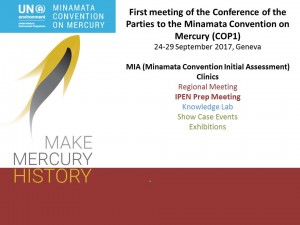 ban new mercury mines and phase-out existing ones;
ban new mercury mines and phase-out existing ones;
• reduce the use, emissions and releases of mercury from artisanal and small-scale gold mining and major industrial activities;
• phase-out and phase-down the use of mercury in a number of mercury-added products and processes, specifically its use in dental amalgam;
• restrict trade and prohibit the manufacture, import and export of mercury and a wide range of mercury-added products such as batteries or lights;
• control and reduce air emissions and land and water releases;
• ensure the safer storage and proper management of mercury waste.
Environmental Ambassadors for Sustainable Development (Environmental Ambassadors, EASD), as accredited organization, participated as the Observer.
EASD representative participated at IPEN Preparatory Meeting, Regional Meeting, Opening Ceremony, Thematic Session focus discussions on mercury as relevant to Land, MIA (Minamata Convention Initial Assessment) Clinics (where countries with UNEP, UNDP and UNIDO and partners showcase their MIA work, including lessons learned), as well as some Showcase Events and Knowledge Labs. To note that MIA for Serbia is under development (EASD contribute as stakeholder…). Also, EASD representative at Minamata COP1 communicate with official delegation of Serbia.
A “Hg-week” (“Mercury” week) coincide with COP1 and physically have its main hub in Geneva starting on Friday, 22 September and ending Thursday 28 September 2017. It featured a series of awareness raising events around the issue of Mercury. The objective of the “Hg-week” is to reach out to participants at COP1, as well as the public, students, and other experts and stakeholders interested in the field of chemicals and health.
Agenda 2030 and SDGs in the focus of EASD work
Multi-stakeholder partnerships at the national, local, regional and international levels, that are solution-oriented and inclusive of all groups, including women, indigenous peoples and minorities, will be crucial to realizing these joint aspirations and will be a key element of the 2030 Agenda and SDG implementation.
The successful adoption of the 2030 Agenda for Sustainable Development Goals was the result of more than two years of intensive consultation and engagement of all stakeholders.
The UNEP Regional Office for Europe, in partnership with the European Economic and Social Committee and the European Environmental Bureau, organized a multi-stakeholders meeting on the implementation of the 2030 Sustainable Development Agenda, combined with the yearly UNEP Regional Consultation Meeting for Major Groups and Stakeholders on 12-13 November 2015 in Brussels, Belgium. EASD participated ( report).
Sustainable Development Indicators data and development for SEE region is underway through Platform Indicators Development. For Serbia, EASD team is focused on Environmental Sustainability, Science and Technology , Health and Hygiene and Energy and Environment . EASD promote The World Environmental Education Day, having the great event in school “Vuk Karadžić”, Surčin.
The 2nd meeting of the UN Environment Assembly (UNEA) will take place from 23-27 May, 2016 in Nairobi, Kenya. The meeting will be held under the overarching theme: “Delivering on the Environmental Dimension of the Post-2015 Development Agenda.” There will also be a Global Major Groups and Stakeholders Forum (GMGSF) held prior to UNEA-2 on 21 and 22 May 2016. Environmental Ambassadors (EASD) is organisation accredited in UNEP/UNEA.
In the preparatory phase, EASD participated in the process of UNEP Redefinition of its Youth Strategy, familiarise with the interactive version of the Bali Guideline Implementation Guide , reviewing new sustainable development agenda (results from open consultation on ‘grey‘ and “green” indicators are now available ).
The 2030 Agenda for Sustainable Development requested the UN Secretary General, in consultation with Member States, to prepare a report in preparation for the 2016 meeting of the High-level Political Forum, which outlines critical milestones towards coherent, efficient and inclusive follow-up and review at the global level, for consideration of the General Assembly. In order to informally contribute to the reflection, Major Groups and other Stakeholders have been invited to provide their views and inputs on these issues by completing an online questionnaire by 15 November 2015. The inputs and responses received is available on the Sustainable Development Knowledge Platform (our organisation is the member of SDKP). In addition, we keep eye on Open-ended Meeting of the Committee of Permanent Representatives to UNEP (OECPR) and Preparatory meeting for the 2nd Session of UNEA, 14-19 February 2016 – we registered our representative to participate.
EASD participated in the UNEP’s survey on the involvement of Major Groups and Stakeholders in the generation, utilization and dissemination of environmental information developed by UNEP. Below some of the key findings are highlighted:
· 63% of the organizations contributed to the generation of environmental information by UNEP to a moderate, large or very large extent
· Of contributions made, the greatest percentage, 56%, was to UNEP publications.
· 88% have accessed environmental information generated by UNEP; publications were the most common form of information accessed, with assessments and findings, and emerging issues coming a joint second.
· The most common way in which organizations accessed UNEP information was via the UNEP website, with the second most common mechanism being via email.
· 87%, have made use of information generated by UNEP either to a moderate, large, or very large extent. Organizations primarily used UNEP generated information for educational purposes, as a guide to their own work, or for analysis.
· 86% have contributed to the further dissemination of environmental information generated by UNEP, principally during meeting discussions or through posting on social media.
· 65% experienced no difficulties in contributing to, accessing, using or disseminating environmental information generated by UNEP, but for those who did the main issue was with language constraints.
· The most effective mode for organizations to be involved in the generation, access, receipt and dissemination of environmental information generated by UNEP was email; this was followed by the UNEP website and through social media.
· 85% successfully received the type of information they needed from UNEP either to a moderate, large or very large extent.
· Suggestions on how UNEP could improve included:
o greater interaction from UNEP on social media
o improvements to websites to make them more user-friendly
o sending of hard copies of important reports and documents to resource centers
o the use of shorter bulletin messages to facilitate understanding of the public
o greater dissemination
o more translations
o timely information sharing to allow sufficient time for review and comments
o the use of Google hangouts, online workshops
o more active engagement with mass-media (e.g. TV)
We “keep eye” on the multi-stakeholder dialogue will be held on Friday 27 May 2016 from 12:30 hrs to 14.00 hrs, TO BE HELD DURING THE HIGH-LEVEL SEGMENT OF UNEA-2. It will be open to all interested delegations and will be organized as a moderated, interactive dialogue session. The proposed theme for the dialogue is: “Restoring and sustaining healthy ecosystems for people and planet: partnerships to jointly deliver on the environmental dimension of Agenda 2030”.
In February 2016, EASD promote stronger position of Environmental NGOs in the draft UNEP Stakeholders Engagement Policy (SEP) . More in local language
EASD participate at 2016 Vienna UN Conference (Vienna, January 13-15, 2016): sustainable development is the basis for a peaceful world.
Very important institutions are based in Vienna which work for the safe, secure and peaceful use of nuclear energy (IAEA), the peaceful use of outer space (UNOOSA) and the prevention of terrorism, organised crime, and drug trafficking (UNODC). UNIDO is dedicated to the creation of shared prosperity and inclusive and sustainable development – the basis for a peaceful world. CTBTO Executive Secretary, Lassina Zerbo, has reminded us that the 70th anniversary of Hiroshima and Nagasaki recalls the real dangers of nuclear weapons and the need for a total ban on nuclear testing. The recent Vienna Iran agreement and the important role given to the IAEA emphasise the important activities carried out by the Vienna based organisations, including the OSCE. Representatives from these institutions, diplomats, and academics will discuss, in inter- active sessions, the challenges and how the UN system and the international community can deliver to overcome emerging challenges and ensure a peaceful and more sustainable world.
2016 Vienna UN Conference (Vienna, January 13-15, 2016) is focused on New Approaches for a Peaceful and More Sustainable World (Poster).
EASD, as organisation in consultative status in ECOSOC AOR, as well as ACUNS institutional member, participate at this conference. Prof Andjelka Mihajlov, EASD Hon.President participated in the Opening session (chairing by Alistair Edgar, Executive Director, Academic Council on the United Nations System, with speakers: Lassina Zerbo, Executive Secretary, CTBTO, Yury Fedotov, Director General/Executive Director, UNOV/UNODC, Yukiya Amano, Director General, IAEA, LI Yong, Director General, UNIDO, Angela Kane, Former UN High Representative for Disarmament Affairs and Keynote speech by Lamberto Zannier, Secretary General, OSCE), as well as in Session Women, Peace and Security (Chair: H.E. Ayoob Erfani, Ambassador of the Islamic Republic of Afghanistan to Austria, Keynote: H.E. Dubravka Simonovic, UN Special Rapporteur on Violence Against Women, Speakers:Nasra Hassan, Association of Austrian Peacekeepers, Former Director, UNIS, Pericles Gasparini, Chief, Office for Disarmament Affairs, UNODA Vienna Office, Fatou Haidara, Director of the Policy-making Organs Secretariat, Advocacy and Communications, UNIDO, Anna Alvazzi, Research Director, Small Arms Survey Senam Mohamad, European Representative, Rojava Self-Governing Democratic Administration, Alistair Edgar, Director, ACUNS). She noted the importance for SEE countries to recognise multilateralism as the c0-share track to EU accession and sustainable development/resource efficiency/environmental sustainability as the tool and SDGs means of implementation. She promotes Gender Impact Assessment as the indicator for each process.
We participate in an on-line survey on UNEP programme planning and implementation
In November 2015 EASD representative participated in an on-line survey on UNEP programme planning and implementation.
In implementing results-based management, UNEP seeks feedback from civil society to improve the quality of its operations, especially in the context of the Programme of Work 2014-2015, which called for an assessment of the level of satisfaction among stakeholders with UNEP programmes, products and services. The Secretariat encourages the civil society representatives to participate in the survey. The findings of the survey will be communicated through the end-of-biennium 2014-2015 Programme Performance Report.
In December 2015 EASD participated also in Survey on the involvement of Major Groups and Stakeholders in the generation, utilization and dissemination of environmental information developed by UNEP.
We participate in Zagreb on Workshop on Water-Food-Energy-Ecosystems Nexus Assessment in the Sava River Basin
Workshop on Water-Food-Energy-Ecosystems Nexus Assessment in the Sava River Basin was organised by the International Sava River Basin Commission (ISRBC) from March 4-6, 2014. in Zagreb. Among more than 60 representatives from Bosnia and Herzegovina, Croatia, Slovenia, Serbia, Montenegro, as well as representatives from UNECE, ISRBC, ICPDR, FAO, RCC, and other international organisations, representative from ENV.net team from Environmental Ambassadors, prof. Natasa Zugic-Drakulic, was also present.
EASD in the Global Alliance to Eliminate Lead Paint: 2013 International Lead Poisoning Prevention Week of Action
EASD, as the CSO National SAICM focal point, active participated in the 2013 International Lead Poisoning Prevention Week of Action, October 20-26, 2013 (Color pencils with and without lead).
On October 22, at 11:00, EASD/ENV.net Serbia Team participated in the central event in Serbia in, the Institute of the Public Health of Serbia – Agenda of the event : program skupa
On October 23. from 9:45 in Eco-School OŠ “Drinka Pavlović” ,Beograd , EASD team, in partnership with the APOS , gave a public lecture on “The sources of lead in the environment” , related lead in environment and lead poisoning (by different pencils and paint products). Our hosts and audience were biology professor Tatiana Tursijan, chemistry professor Dragana Ilic, and 7. and 8. grade students.
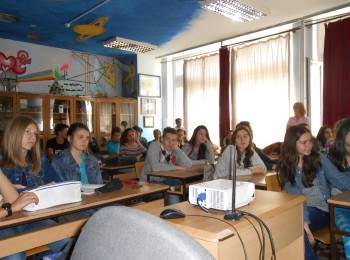
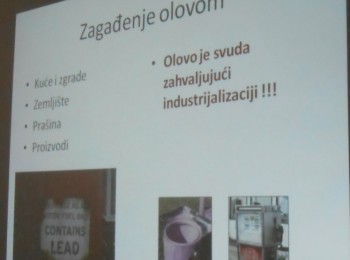 EASD presentation on lead from environmental angle : AOR Olovo 22.10.2013.
EASD presentation on lead from environmental angle : AOR Olovo 22.10.2013.
Events have media attention, for example.
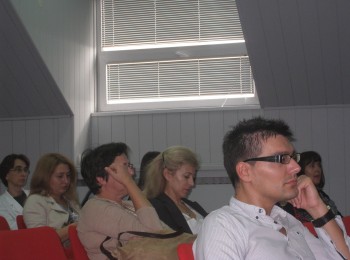 Lead is well-known toxic chemical with ability to harm human health and cause wide range of health disorders including neurological disorders, anaemia, tiredness and muscle weakness, paralysis, kidney and liver damage and stomach upsets. According to WHO assessments lead exposure is estimated to account for 0.6% of the global burden of disease, with the highest burden in developing regions.
Lead is well-known toxic chemical with ability to harm human health and cause wide range of health disorders including neurological disorders, anaemia, tiredness and muscle weakness, paralysis, kidney and liver damage and stomach upsets. According to WHO assessments lead exposure is estimated to account for 0.6% of the global burden of disease, with the highest burden in developing regions.
In children, the potential for adverse effects of exposure to lead is increased because of their physiological, metabolic and behavioural specificity. Lead can pose the risk to unborn child due to its possibility moves through placenta. Childhood lead exposure causes cognitive functions disorder resulted in about 600,000 new cases of children with intellectual disabilities every year. Latest scientific findings confirmed that there is no safe threshold for lead and that lead poisoning is entirely preventable.
The phasing out of lead from petrol, first in western Europe and later in central and eastern Europe, has resulted in a significant fall in blood lead levels in children over the last two decades. Nevertheless there are still a lot of sources of lead releases into environment such as industrial processes, paint, solder in canned foods and water pipes. It is still necessary to further reduce the levels of lead in the blood because there is no known safe level in children and pregnant women.
To facilitate action aim preventing of lead poisonings globally and especially exposure to lead from paint WHO together with UNEP created Global Alliance to Eliminated Lead from Paint (GAELP) that includes United States Centres for Diseases Control, US EPA and International Paediatric Association as well as Who and UNEP. The GAELP aims to elimination of lead from paint till 2020 in the majority of countries.
To raise awareness about lead poisoning, highlight countries and partners’ efforts to prevent childhood lead poisoning and urge further action to eliminate lead paint WHO through the GAELP will facilitate an international campaign on lead poisoning prevention (with a focus on lead paint), to take place 20-26 October 2013. This will be a campaign involving voluntary country-led activities, and we are now at the stage where countries (and NGOs) can volunteer to take part.
In WHO European Region four public health institutions and poison centres in Albania, Georgia, Republic of Moldova, and Serbia and a number of non-governmental organizations located in Armenia, France, Kazakhstan, Kirgizstan, Republic of Moldova and Serbia registered events that they will organize during Lead Poisoning Prevention Week. The diversity of events that are planned reflect countries priorities in elimination of lead poisonings that for WHO/ Europe Member States includes awareness raising workshops with decision-makers, legislators, industry representatives, TV events and mass media publications, distribution of booklets, national conferences are planned in the participating countries. Interesting events such as exhibition on lead poisonings and screening of the preventive movie will take place in France. Clinical toxicologists will inform from CHRU Lilly (France) Poison Control Centre will send mail to approximately 1500 City halls and to Paediatricians and Child Professionals.
Action to eliminate leaded paints should take place in all countries.
“Little progress” in Chapter 27 issues in 2013, according to EC
Serbian first priority is accession to EU.
EC Delegation in Serbia, present to relevant CSOs, on October 18, 2013 , Serbia Progress Report 2013, in which the Commission services present their assessment of what Serbia as the candidate country has achieved over the last year. Presentation on 2013 Reports’ economic chapters is followed by discussion by CSOs representatives, including the NGOs as the one of category of CSOs. Environmental Chapter have great attention in discussion part of the meeting.
Related to Chapter 27, overall EC conclusions is “little progress”.
Although there are a lot of challenges ( EU Enlargement Factsheets – Energy, Climate Change and Environment ), EC conclusion is in some relevant segments different that ENV.net Study (ENV.net-Study-Extended-Summary-June-2013 ).
ENV.net Serbia Team prepared document: Reading of 2013 Progress Report for Serbia and Strategy by ENV.net Serbia Team ( Serbia 2013 Progress Report and Strategy – Reading by ENV.net Serbia Team ). Resulting key words are : Group 1 : civil society organizations, empowered civil society, Dialogue between decision makers and stakeholders , Public awareness, public participation and consultation process; Group 2: sustainable growth, synergies between environment and economy, emissions to air /air quality , waste management , environmental governance , climate change, protected areas, water management, chemicals management, environmental impact assessment, integral pollution and prevention control (industrial emissions); Group 3: implementation of adopted legislation, Intra- and inter-institutional cooperation, proper functioning of the core institutions, coordination of sectoral policies; Group 4: the skills gap, education and training.
Some background information for SERBIA: candidate – applied in 2009, obtained candidate status in March 2012. The EU-facilitated dialogue between Belgrade and Pristina was launched in March 2011. The First agreement of principles governing normalisation of relations was reached with Kosovo in April 2013. The momentum of reforms has also been reinvigorated in Serbia. The European Council decided in June 2013 to open accession negotiations. The first Intergovernmental Conference on Serbia’s accession negotiations will be held in January 2014 at the very latest, after the Council adopts the negotiating framework, which was proposed by the Commission in July 2013. In the meantime, the ‘screening’ began in September 2013. The Stabilisation and Association Agreement (SAA) entered into force on 1 September. – see more
Research results presented to scientific community
EASD experts presented research results at international conferences.
Papers:
– Rethinking Waste Management within the Resource-efficient Concept, Anđelka Mihajlov and Hristina Stevanović-Čarapina, key note lecture
– Identification and characterization of Marinas in Vojvodina, Serbia, Nataša Žugić-Drakulić, Hristina Stevanović- Čarapina and Anđelka Mihajlov
were presented at the 7th ICEEM Conference: Challenges for Sustainability, Vienna, September 2013 ( full program).
Paper:
Environmental and Social Impact Assessment (ESIA): meaning and framework , Nebojsa Pokimica and Andjelka Mihajlov
was presented at the FIRST REGIONAL CONFERENCE ON ENVIRONMENTAL IMPACT ASSESSMENT, Zadar, Croatia, September , 2013.
2013 ISWA world Congress – October Vienna. Almost 1,300 delegates from 84 countries gathered in the beautiful city of Vienna, which constitutes once again a new record participation for the ISWA World Congress. The participants were offered a lot during the 3 congress days, from the inspiring opening to the tropical closing ceremony, e.g. 250 speeches in 56 sessions, 180 poster presentations. EASD / ENV.net team participated. EVALUATION CRITERIA FOR LOCAL SOLID WASTE MANAGEMENT PLANS, Hristina Stevanovic Carapina and Andjelka Mihajlov was presented.
Presentations are ENV.net study related.
We have expertise and deliver results related issues:
Projects 2004-2011
- Sustainable Development and Environment towards EU: “EnE – Environment to Europe” Conferences 2005, 2006, 2007, 2008, 2009, 2010, 2011, in cooperation with Serbian Chamber of Commerce
- E-communication standards , 2011, supported by Ministry of Environment and Spatial Planning
- “Support to the Department of Planning, Programming, Monitoring and Reporting on EU Funds and development assistance to the Office for European Integration of Serbia, for establishing a partnership to promote the use of international assistance “, participant as the member of leading SEKO Consortium for Environment and Energy, 2011 ,
- Ecological footprint: analysis and training, project supported by UNESCO, 2011
- Possible aspects of environmental protection and natural resource management for Rural Development, supported as advisory project in the “Project on Transitional Agriculture Reform,” World Bank , 2011, 2011/2012, the Ministry of Agriculture, Forestry and Water Management of the Republic of Serbia
- Environment Forum , project supported by EC (DG Environment)
- Analytical study of the impact of air pollution on the population in selected urban locations (Pancevo, Vrsac, Bor), (participation in the project with the questioning of citizens in selected locations on the subject), a project supported by the ministries responsible for the environment and for science
- Hazardous Waste Management, TAIEX DG Enlargement INFRA 32384 project, 2009
- Say Yes to Palilula , project supported by City of Belgrade Municipality Palilula
- Modify habits – keep Belgrade clean!, the project supported by the Secretariat of Environment of Belgrade
- Hit the right tone by use environmentally friendly rules , project supported by City of Belgrade Municipality Vracar
- Regional environmental advocacy and cohesion of the Western Balkans (abbreviation: REA), Project supported by the Embassy of Nederland (2009-2011) , REA Project Snapshots , Courses
- Children – the guardians of municipality, project supported by City of Belgrade Municipality Vozdovac
- Local Environmental Security (abbreviation: LES), project supported by OSCE in Serbia, LES Brochure
- Keep it healthy, keep it green, keep it European , project supported by NDI
- Involvement of NGOs in Serbia in the research of renewable energy sources, a project supported by the EU
- My Belgrade – My Environment , the project supported by the Secretariat of Environment of Belgrade
- Local strategic planning , project supported by City of Belgrade Municipality Stari Grad
- Technology Transfer Partnerships, project supported by CIDA
- Sustainable development and environmental leaders for tomorrow, 2006/2007, MATRA
- Building a common ‘green’ future in Europe (Regional Initiative for cohesion in the field of environment), project supported by Open society Fund
- RENCO – Regional Environmental Cohesion: Towards sustainable development strategy for urban South-East Europe, project supported by Sida and Ministry of Environment
- Women as the Voice for Sustainable Development and Environment , project supported by CIDA, WAVE_Report_2007-draft
- Education courses for provincial and local authorities on public participation in decision-making related to the Environmental Impact Assessment and Strategic Impact Assessment , Project supported by Ministry of Environment

